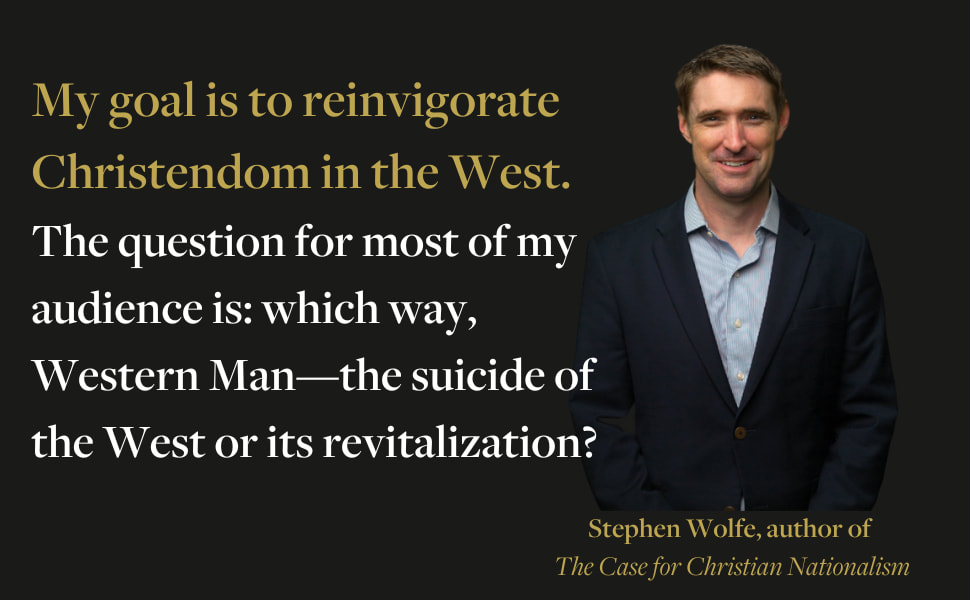Christian literature is the literary aspect of Christian media, and it constitutes a huge body of extremely varied writing. While falling within the strict definition of literature, the Bible is not generally considered literature. However, the Bible has been treated and appreciated as literature; the King James Version in particular has long been considered a masterpiece of English prose, whatever may be thought of its religious significance. Several retellings of the Bible, or parts of the Bible, have also been made with the aim of emphasising its literary qualities.
|
Crosby-Schøyen Codex: 4th-century book documenting Christianity sells for $3.9M An ancient book documenting Christianity hit the auction block this week and sold by Christie’s for $3.9 million. The Crosby-Schøyen Codex is about 1,800 years old and was written at one of the first Christian monasteries in Upper Egypt. It dates to between 250 and 350 A.D, Barron’s reported. PBS reported the timing of the codex as 325 to 350 A.D (WSBTV-Atlanta 6/12/24) READ MORE>>>>> 
Book review: Jesus and the Powers: Christian political witness in an age of totalitarian terror and dysfunctional democracies, by Tom Wright and Michael F. Bird
Jamie Winship, Living Fearless: Exchanging the Lies of the World for the liberating Truth of God. Grand Rapids: Revell, 2022. 170 pages.Tom Wright and Michael F. Bird take up the challenge of witnessing to the “Kingdom of Jesus”, located in the “shadow of empire”. How are contemporary Christians to follow Jesus and the Church to witness in the face of the “powers” so turbulently and disturbingly at work in the world? The authors take their readers with zest and verve on not just one, but many, high-speed tours through the histories of Greece and Rome, their politics and their philosophy, and the interactions between those civilisations and the unfolding biblical story of salvation. They seek to show how, in the midst of all the turbulence of the present day, it is still true that Jesus is King, and, therefore, in a frequently repeated phrase, the primary task of Christians is to “build for the Kingdom”. That means specifically relating to empire, the alternative “kingdoms” of this world. So, we are not, pace Francis Fukuyama, at “the end of history”; Christianity cannot be understood without bearing witness among the world’s empires, something that the Church since Constantine has done variously by confronting, accepting, submitting — and often colluding. (Church Times 4/28/24) READ MORE>>>>> 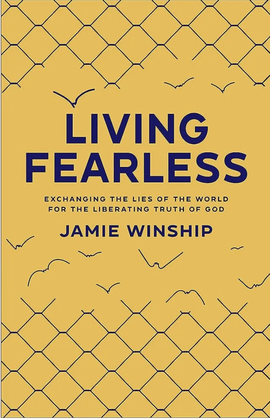
Book review: Living Fearless, by Jamie Winship
Jamie Winship, Living Fearless: Exchanging the Lies of the World for the liberating Truth of God. Grand Rapids: Revell, 2022. 170 pages. Jamia Winship was a police officer in Washington, D.C., and was then recruited to work for thirty years in the Muslim world.He has some amazing stories to tell about working with Muslims who experienced the truth of Christ. This book is built on the simple, fundamental tenet that people's basic problem is that we have believed lies about who we are, and understanding our true identity in Christ can set us free. Winship begins the book by describing what it was like to be trained by the toughest cop there was: the Troll. The Troll was rough, crude, and insulting. He made it as difficult as possible for people to complete their training. Winship survived and learned many lessons in the process about himself and God. At the end of every shift, the Troll would say, "Since I don't think you're going to make it, do you want to resign now?" Through that difficult experience, Winship learned what it meant to "abide" (Richard Blackaby/Biblical Leadership 11/16/23) READ MORE>>>>> 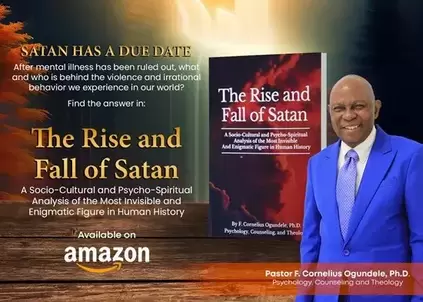
The Rise and Fall of Satan by F. Cornelius Ogundele
San Francisco, California--(Newsfile Corp. - November 4, 2023) - Pastor and licensed counselor F. Cornelius Ogundele explores the source of violence and aggression in his intriguing new book, The Rise and Fall of Satan: A Socio-Cultural and Psycho-Spiritual Analysis of the Most Invisible and Enigmatic Figure in Human History. This insightful text views Satan from a diverse range of perspectives in a way that's never been done before. At its core, The Rise and Fall of Satan questions who or what is behind the evil in our world. Satan is the driving force that tempts and deceives humanity, twisting the thoughts of ordinary individuals to accept violence. By embracing arrogance and disobeying higher moral laws, people can lose themselves to evil without any hope of returning to their once-righteous lives. Unlike other books that examine the role of Satan throughout history, Ogundele's work is meant for religious and nonreligious readers alike. Each chapter introduces key concepts about human violence while building incrementally to ensure the audience can easily follow along. Ogundele hopes his work will spark a larger conversation about the origins of evil, aggression, and violent atrocities. The Rise and Fall of Satan is the perfect introduction to prepare readers for further research or to enter a dialogue about how Satan acts in the world around us. At a time when violence is too often at the forefront of society, The Rise and Fall of Satan is a relevant, compelling read. The Rise and Fall of Satan: A Socio-Cultural and Psycho-Spiritual Analysis of the Most Invisible and Enigmatic Figure in Human History is available for purchase on Amazon.com or wherever books are sold. F. Cornelius Ogundele is a licensed counselor and the pastor of The Apostolic Church in Steger, Illinois. After earning doctoral degrees in psychology, counseling, and theology, he has served in the mental health field for over 20 years. He is the author of several books, including American and Common-Sense Politics and Noah and Alcohol, among others. Ogundele is a proud husband, father of four, and grandfather of eight. Source: Charlotte Simmons [email protected] Dabb Media To view the source version of this press release, please visit https://www.newsfilecorp.com/release/186235 |
Erdmans
|

Dr Aaron Edwards was recently dismissed from Cliff College – the Methodist Bible college where he worked as a lecturer – after pro-LGBT advocates attacked him over his views on sexuality. Here he explains why his sacking should be a concern for all Christians.
Rod Dreher’s excellent book, Live Not By Lies (Sentinel), interviews Christians who suffered under Soviet communism and who now see similar totalitarian patterns in Western progressivism. One woman, a Soviet-born émigré now teaching at a US university, said: “You have no idea what completely normal things you do today, or say today, will be used against you to destroy you. This is what people in the Soviet Union saw. We know how this works.” -Premier Christianity: I've just been dismissed by a Christian college for tweets on homosexuality – if I wasn’t safe, no one is 3/24/23
----------------------------
The New York Times bestselling author of The Benedict Option draws on the wisdom of Christian survivors of Soviet persecution to warn American Christians of approaching dangers.
For years, émigrés from the former Soviet bloc have been telling Rod Dreher they see telltale signs of "soft" totalitarianism cropping up in America--something more Brave New World than Nineteen Eighty-Four. Identity politics are beginning to encroach on every aspect of life. Civil liberties are increasingly seen as a threat to "safety". Progressives marginalize conservative, traditional Christians, and other dissenters. Technology and consumerism hasten the possibility of a corporate surveillance state. And the pandemic, having put millions out of work, leaves our country especially vulnerable to demagogic manipulation.
In Live Not By Lies, Dreher amplifies the alarm sounded by the brave men and women who fought totalitarianism. He explains how the totalitarianism facing us today is based less on overt violence and more on psychological manipulation. He tells the stories of modern-day dissidents--clergy, laity, martyrs, and confessors from the Soviet Union and the captive nations of Europe--who offer practical advice for how to identify and resist totalitarianism in our time. Following the model offered by a prophetic World War II-era pastor who prepared believers in his Eastern European to endure the coming of communism, Live Not By Lies teaches American Christians a method for resistance:
• SEE: Acknowledge the reality of the situation.
• JUDGE: Assess reality in the light of what we as Christians know to be true.
• ACT: Take action to protect truth.
Aleksandr Solzhenitsyn famously said that one of the biggest mistakes people make is assuming totalitarianism can't happen in their country. Many American Christians are making that mistake today, sleepwalking through the erosion of our freedoms. Live Not By Lies will wake them and equip them for the long resistance.
Rod Dreher’s excellent book, Live Not By Lies (Sentinel), interviews Christians who suffered under Soviet communism and who now see similar totalitarian patterns in Western progressivism. One woman, a Soviet-born émigré now teaching at a US university, said: “You have no idea what completely normal things you do today, or say today, will be used against you to destroy you. This is what people in the Soviet Union saw. We know how this works.” -Premier Christianity: I've just been dismissed by a Christian college for tweets on homosexuality – if I wasn’t safe, no one is 3/24/23
----------------------------
The New York Times bestselling author of The Benedict Option draws on the wisdom of Christian survivors of Soviet persecution to warn American Christians of approaching dangers.
For years, émigrés from the former Soviet bloc have been telling Rod Dreher they see telltale signs of "soft" totalitarianism cropping up in America--something more Brave New World than Nineteen Eighty-Four. Identity politics are beginning to encroach on every aspect of life. Civil liberties are increasingly seen as a threat to "safety". Progressives marginalize conservative, traditional Christians, and other dissenters. Technology and consumerism hasten the possibility of a corporate surveillance state. And the pandemic, having put millions out of work, leaves our country especially vulnerable to demagogic manipulation.
In Live Not By Lies, Dreher amplifies the alarm sounded by the brave men and women who fought totalitarianism. He explains how the totalitarianism facing us today is based less on overt violence and more on psychological manipulation. He tells the stories of modern-day dissidents--clergy, laity, martyrs, and confessors from the Soviet Union and the captive nations of Europe--who offer practical advice for how to identify and resist totalitarianism in our time. Following the model offered by a prophetic World War II-era pastor who prepared believers in his Eastern European to endure the coming of communism, Live Not By Lies teaches American Christians a method for resistance:
• SEE: Acknowledge the reality of the situation.
• JUDGE: Assess reality in the light of what we as Christians know to be true.
• ACT: Take action to protect truth.
Aleksandr Solzhenitsyn famously said that one of the biggest mistakes people make is assuming totalitarianism can't happen in their country. Many American Christians are making that mistake today, sleepwalking through the erosion of our freedoms. Live Not By Lies will wake them and equip them for the long resistance.
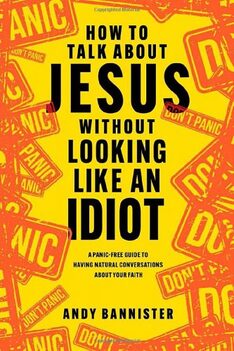
Andy Bannister – How to Talk About Jesus Without Looking like an Idiot
A panic-free guide to having natural conversations about Jesus 8/9/23
You have to feel sorry for Andy Bannister’s children! He is possibly the teller of the worst dad jokes in human history. I am surprised that there isn’t a hazard warning notice on the cover of this book. The cover has the sign: Don’t Panic; perhaps it should say Don’t Laugh, you might encourage him! No seriously, the jokes aside this is a helpful and readable guide to how to speak to people about Jesus.
First, the book deals with the confidence issue. The author deals with a range of common things that make us too afraid to speak about our faith, and using his own story he shows how those fears can be overcome.
Second, the book shows how Jesus models asking questions. This section helpfully shows how we can be too quick to get to the answer, with people being unaware of the need for one.
The four questions he suggests are: What? Why? Wondering? Whether?
He offers the following four examples:
What do you mean by the word god?
Why do you think that all religions lead to god?
Have you ever wondered why we are so drawn to art and beauty?
I wonder whether Christianity makes better sense of human rights and dignity than the alternatives?
Third, the offers advice on how to deal with questions. Here he uses the five steps SHARE:
Sympathise with the person asking the question.
Highlight hidden assumptions made by the questioner.
Apply the Bible to the question.
Retell the gospel to point the questioner to Jesus.
(This section also reinforces what the author has said about connecting the question to what Jesus said, did or a story he told.)
Equip your friend by pointing them to appropriate resources for further exploration.
Most readers would benefit from reading a book like this. It does open up the possibilities of gospel witness and provides some useful tools for engaging in it.
Many books on evangelism suffer from the gift projection of the author and the sense that the evangelistic formula provided is more straightforward in theory than in practice.
Andy Bannister seeks to avoid gift projection, yet I think some people might still be intimidated by this book. While it does avoid merely offering a guaranteed formula, readers might yet ask: why is that the actual non-Christians we talk to seem so much less compliant than those in the books on evangelism?!
This might not be the last word on evangelism for the timid, but it is a good start. Keep calm and read Andy!
John Woods is a writer and Bible teacher based in West Sussex. He is Director of Training at the School of Preachers in Riga, Latvia.
A panic-free guide to having natural conversations about Jesus 8/9/23
You have to feel sorry for Andy Bannister’s children! He is possibly the teller of the worst dad jokes in human history. I am surprised that there isn’t a hazard warning notice on the cover of this book. The cover has the sign: Don’t Panic; perhaps it should say Don’t Laugh, you might encourage him! No seriously, the jokes aside this is a helpful and readable guide to how to speak to people about Jesus.
First, the book deals with the confidence issue. The author deals with a range of common things that make us too afraid to speak about our faith, and using his own story he shows how those fears can be overcome.
Second, the book shows how Jesus models asking questions. This section helpfully shows how we can be too quick to get to the answer, with people being unaware of the need for one.
The four questions he suggests are: What? Why? Wondering? Whether?
He offers the following four examples:
What do you mean by the word god?
Why do you think that all religions lead to god?
Have you ever wondered why we are so drawn to art and beauty?
I wonder whether Christianity makes better sense of human rights and dignity than the alternatives?
Third, the offers advice on how to deal with questions. Here he uses the five steps SHARE:
Sympathise with the person asking the question.
Highlight hidden assumptions made by the questioner.
Apply the Bible to the question.
Retell the gospel to point the questioner to Jesus.
(This section also reinforces what the author has said about connecting the question to what Jesus said, did or a story he told.)
Equip your friend by pointing them to appropriate resources for further exploration.
Most readers would benefit from reading a book like this. It does open up the possibilities of gospel witness and provides some useful tools for engaging in it.
Many books on evangelism suffer from the gift projection of the author and the sense that the evangelistic formula provided is more straightforward in theory than in practice.
Andy Bannister seeks to avoid gift projection, yet I think some people might still be intimidated by this book. While it does avoid merely offering a guaranteed formula, readers might yet ask: why is that the actual non-Christians we talk to seem so much less compliant than those in the books on evangelism?!
This might not be the last word on evangelism for the timid, but it is a good start. Keep calm and read Andy!
John Woods is a writer and Bible teacher based in West Sussex. He is Director of Training at the School of Preachers in Riga, Latvia.

David Livingstone was one of the most consequential individuals who lived in the nineteenth century. An unpretentious Scottish missionary doctor, explorer and abolitionist, he opened the door for Christianity in southern Africa. Vance Christie’s biography is the most comprehensive and accurate ever written about Livingstone. During his lifetime he was a hero in Britain and beyond, and gained a degree of respect, trust, appreciation and even affection with many African people. He was a man who overcame many deprivations and discouragements, and displayed the utmost measure of courage, self–control, faith, wisdom and ingenuity. Christie takes a balanced look at Livingstone’s amazing achievements, but also at his very real flaws. This gripping in–depth biography is a must–read insight into a fascinating man -Release Date: July 2023 by Vance Christie
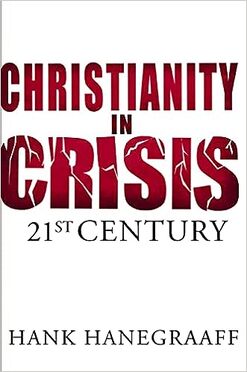 Thomas Nelson (June 7, 2012)
Thomas Nelson (June 7, 2012)
These are not obscure teachers that Hanegraaff unmasks. We know their names. We have seen their faces, sat in their churches, and heard them shamelessly preach and promote the false pretexts of a give-to-get gospel. They are virtual rock stars who command the attention of presidential candidates and media moguls. Through make-believe miracles, urban legends, counterfeit Christs, and twisted theological reasoning, they peddle an occult brand of metaphysics that continues to shipwreck the faith of millions around the globe:
“God cannot do anything in this earthly realm unless we give Him permission.”
“Keep saying it—‘I have equality with God’—talk yourself into it.”
“Being poor is a sin.”
“The Jews were not rejecting Jesus as Messiah; it was Jesus who was refusing to be the Messiah to the Jews!”
“You create your own world the same way God creates His. He speaks, and things happen; you speak, and they happen.”
Christianity in Crisis: 21st Century exposes darkness to light, pointing us back to a Christianity centered in Christ.
From the Preface:
“Having lost the ability to think biblically, postmodern Christians are being transformed from cultural change agents and initiators into cultural conformists and imitators. Pop culture beckons, and postmodern Christians have taken the bait. As a result, the biblical model of faith has given way to an increasingly bizarre array of fads and formulas.”
“God cannot do anything in this earthly realm unless we give Him permission.”
“Keep saying it—‘I have equality with God’—talk yourself into it.”
“Being poor is a sin.”
“The Jews were not rejecting Jesus as Messiah; it was Jesus who was refusing to be the Messiah to the Jews!”
“You create your own world the same way God creates His. He speaks, and things happen; you speak, and they happen.”
Christianity in Crisis: 21st Century exposes darkness to light, pointing us back to a Christianity centered in Christ.
From the Preface:
“Having lost the ability to think biblically, postmodern Christians are being transformed from cultural change agents and initiators into cultural conformists and imitators. Pop culture beckons, and postmodern Christians have taken the bait. As a result, the biblical model of faith has given way to an increasingly bizarre array of fads and formulas.”

Dealing with Darwin: Place, Politics, and Rhetoric in Religious Engagements with Evolution by David Livingstone
How was Darwin’s work discussed and debated among the same religious denomination in different locations?
Using place, politics, and rhetoric as analytical tools, historical geographer David N. Livingstone investigates how religious communities sharing a Scots Presbyterian heritage engaged with Darwin and Darwinism at the turn of the twentieth century. His findings, presented as the prestigious Gifford Lectures, transform our understandings of the relationship between science and religion.
The particulars of place―whether in Edinburgh, Belfast, Toronto, Princeton, or Columbia, South Carolina―shaped the response to Darwin’s theories. Were they tolerated, repudiated, or welcomed? Livingstone shows how Darwin was read in different ways, with meaning distilled from Darwin's texts depending on readers' own histories―their literary genealogies and cultural preoccupations. That the theory of evolution fared differently in different places, Livingstone writes, is "exactly what Darwin might have predicted. As the theory diffused, it diverged."
Dealing with Darwin shows the profound extent to which theological debates about evolution were rooted in such matters as anxieties over control of education, the politics of race relations, the nature of local scientific traditions, and challenges to traditional cultural identity. In some settings, conciliation with the new theory, even endorsement, was possible―demonstrating that attending to the specific nature of individual communities subverts an inclination to assume a single relationship between science and religion in general, evolution and Christianity in particular.
Livingstone concludes with contemporary examples to remind us that what scientists can say and what others can hear in different venues differ today just as much as they did in the past.
How was Darwin’s work discussed and debated among the same religious denomination in different locations?
Using place, politics, and rhetoric as analytical tools, historical geographer David N. Livingstone investigates how religious communities sharing a Scots Presbyterian heritage engaged with Darwin and Darwinism at the turn of the twentieth century. His findings, presented as the prestigious Gifford Lectures, transform our understandings of the relationship between science and religion.
The particulars of place―whether in Edinburgh, Belfast, Toronto, Princeton, or Columbia, South Carolina―shaped the response to Darwin’s theories. Were they tolerated, repudiated, or welcomed? Livingstone shows how Darwin was read in different ways, with meaning distilled from Darwin's texts depending on readers' own histories―their literary genealogies and cultural preoccupations. That the theory of evolution fared differently in different places, Livingstone writes, is "exactly what Darwin might have predicted. As the theory diffused, it diverged."
Dealing with Darwin shows the profound extent to which theological debates about evolution were rooted in such matters as anxieties over control of education, the politics of race relations, the nature of local scientific traditions, and challenges to traditional cultural identity. In some settings, conciliation with the new theory, even endorsement, was possible―demonstrating that attending to the specific nature of individual communities subverts an inclination to assume a single relationship between science and religion in general, evolution and Christianity in particular.
Livingstone concludes with contemporary examples to remind us that what scientists can say and what others can hear in different venues differ today just as much as they did in the past.
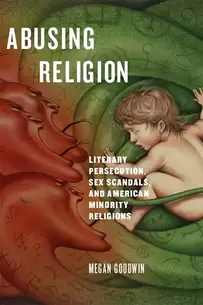
Abusing Religion: Literary Persecution, Sex Scandals,
and American Minority Religions by Megan Goodwin; July 2020
Sex abuse happens in all communities, but American minority religions often face disproportionate allegations of sexual abuse. Why, in a country that consistently fails to acknowledge—much less address—the sexual abuse of women and children, do American religious outsiders so often face allegations of sexual misconduct? Why does the American public presume to know “what’s really going on” in minority religious communities? Why are sex abuse allegations such an effective way to discredit people on America’s religious margins? What makes Americans so willing, so eager to identify religion as the cause of sex abuse? Abusing Religion argues that sex abuse in minority religious communities is an American problem, not (merely) a religious one.
and American Minority Religions by Megan Goodwin; July 2020
Sex abuse happens in all communities, but American minority religions often face disproportionate allegations of sexual abuse. Why, in a country that consistently fails to acknowledge—much less address—the sexual abuse of women and children, do American religious outsiders so often face allegations of sexual misconduct? Why does the American public presume to know “what’s really going on” in minority religious communities? Why are sex abuse allegations such an effective way to discredit people on America’s religious margins? What makes Americans so willing, so eager to identify religion as the cause of sex abuse? Abusing Religion argues that sex abuse in minority religious communities is an American problem, not (merely) a religious one.
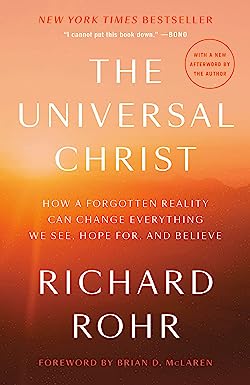
“Anyone who strives to put their faith into action will find encouragement and inspiration in the pages of this book.”—Melinda Gates
In his decades as a globally recognized teacher, Richard Rohr has helped millions realize what is at stake in matters of faith and spirituality. Yet Rohr has never written on the most perennially talked about topic in Christianity: Jesus. Most know who Jesus was, but who was Christ? Is the word simply Jesus’s last name? Too often, Rohr writes, our understandings have been limited by culture, religious debate, and the human tendency to put ourselves at the center.
Drawing on scripture, history, and spiritual practice, Rohr articulates a transformative view of Jesus Christ as a portrait of God’s constant, unfolding work in the world. “God loves things by becoming them,” he writes, and Jesus’s life was meant to declare that humanity has never been separate from God—except by its own negative choice. When we recover this fundamental truth, faith becomes less about proving Jesus was God, and more about learning to recognize the Creator’s presence all around us, and in everyone we meet.
Thought-provoking, practical, and full of deep hope and vision, The Universal Christ is a landmark book from one of our most beloved spiritual writers, and an invitation to contemplate how God liberates and loves all that is. Convergent Books (Released March 5, 2019)
In his decades as a globally recognized teacher, Richard Rohr has helped millions realize what is at stake in matters of faith and spirituality. Yet Rohr has never written on the most perennially talked about topic in Christianity: Jesus. Most know who Jesus was, but who was Christ? Is the word simply Jesus’s last name? Too often, Rohr writes, our understandings have been limited by culture, religious debate, and the human tendency to put ourselves at the center.
Drawing on scripture, history, and spiritual practice, Rohr articulates a transformative view of Jesus Christ as a portrait of God’s constant, unfolding work in the world. “God loves things by becoming them,” he writes, and Jesus’s life was meant to declare that humanity has never been separate from God—except by its own negative choice. When we recover this fundamental truth, faith becomes less about proving Jesus was God, and more about learning to recognize the Creator’s presence all around us, and in everyone we meet.
Thought-provoking, practical, and full of deep hope and vision, The Universal Christ is a landmark book from one of our most beloved spiritual writers, and an invitation to contemplate how God liberates and loves all that is. Convergent Books (Released March 5, 2019)

Babylon is not a place but rather the seducing spirit of Antichrist, which has quietly infiltrated the pulpits, pews, bookstores and homes of the Christian ranks. Armed with a vast array of worldly charms and enchanting indulgences, she has deceived believers into exchanging a vibrant life in God for the empty shell of powerless religion. Intoxicated With Babylon rips the mask off this harlot’s face and exposes how she has subtly woven her mindset into the fabric of the end-times Church. It is a sobering wake-up call to a slumbering and sensuous Church to return to holy living. Published by Pure Life Ministries (April 15, 2013)
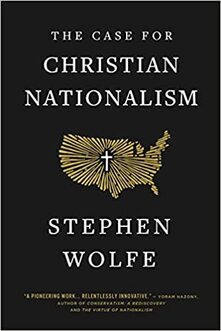
For Wolfe, the future is a strong nation, and a strong nation happens to be the Christian one. The church’s witness of a future Kingdom, the faithfulness of God, and the “weak things of the world shaming the strong” barely register. Wolfe’s only response to opposition is a Nietzschean-like challenge: Does a Christian man (yes, male) have the strength of will to impose his vision of Christian life and law onto a vacuum of secularist life? There is only one answer he will accept. And anyone who disagrees with him has submitted to the contradictions of an Enlightenment-infused liberal agenda and is close to embracing the progressive excesses of the left.
Wolfe’s work could function all too well as a theological and philosophical foundation for some of the worst impulses in our all-too-human hearts. It lays the foundation for Caesaropapism, a renewing of racial divisions within society and church, blurred lines of church and state authorities, overly ambitious civil laws, and brute power politics. Wolfe is himself careful to avoid invoking the “nationalism” of the 1930s and ’40s, content to defend a “phenomenological nationalism,” or, “the lived experience” of associating with one’s own. Nonetheless, Wolfe writes a manifesto that in the wrong hands could do great harm.
As I read The Case for Christian Nationalism, I admit to empathizing in places. Often I even agreed. To the average college student, I am the bad guy: white, straight, male, upper-middle class, a Christian pastor. I know that the Gender Studies department on my campus teaches a vision of humanity that is, by my Christian lights, anti-human. Wolfe correctly senses these errors. But he goes the wrong way in search of a solution. He dignifies sinful natural impulses to generate a will to power, and he tries to match a leftist power narrative with a Christian nationalist one—an eye for an eye, or rather, a blow for a blow. For Wolfe, the meek not only cannot inherit the earth—they ought not. They simply don’t deserve it.
This is no way forward for Christians. Our faith depends on the power of weakness. The meek shall inherit the earth. God will use the weak to shame the strong. I trust this, not because I deduce or intuit it or even because my tradition confesses it, but because God’s Word tells me. That is enough for my family—and for my nation.
---------Jonathan Clark; Reformed University Fellowship in Colorado Springs, Colo.; Jan 18, 2023
Wolfe’s work could function all too well as a theological and philosophical foundation for some of the worst impulses in our all-too-human hearts. It lays the foundation for Caesaropapism, a renewing of racial divisions within society and church, blurred lines of church and state authorities, overly ambitious civil laws, and brute power politics. Wolfe is himself careful to avoid invoking the “nationalism” of the 1930s and ’40s, content to defend a “phenomenological nationalism,” or, “the lived experience” of associating with one’s own. Nonetheless, Wolfe writes a manifesto that in the wrong hands could do great harm.
As I read The Case for Christian Nationalism, I admit to empathizing in places. Often I even agreed. To the average college student, I am the bad guy: white, straight, male, upper-middle class, a Christian pastor. I know that the Gender Studies department on my campus teaches a vision of humanity that is, by my Christian lights, anti-human. Wolfe correctly senses these errors. But he goes the wrong way in search of a solution. He dignifies sinful natural impulses to generate a will to power, and he tries to match a leftist power narrative with a Christian nationalist one—an eye for an eye, or rather, a blow for a blow. For Wolfe, the meek not only cannot inherit the earth—they ought not. They simply don’t deserve it.
This is no way forward for Christians. Our faith depends on the power of weakness. The meek shall inherit the earth. God will use the weak to shame the strong. I trust this, not because I deduce or intuit it or even because my tradition confesses it, but because God’s Word tells me. That is enough for my family—and for my nation.
---------Jonathan Clark; Reformed University Fellowship in Colorado Springs, Colo.; Jan 18, 2023
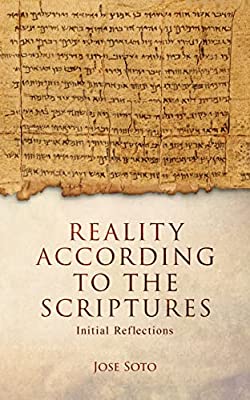
Reality According to the Scriptures by Jose Soto
What is the meaning of life, and how does it relate to the Gospel? Reality According to the Scriptures by José Soto seeks to answer this question and enlighten us on God’s grand plan. It provides a glimpse into Soto’s research on the nature of God’s creation and the true purpose of life. He draws on Scripture, reputable secondary sources, and personal life experiences to present the divine message of the Gospel and redemption. It covers topics on the meaning of blessings, the work of the Holy Spirit in our lives, oneness with God, and love for one another. These lessons will open your eyes to a new dimension and understanding of Christian life and existence. This is one of the best-researched works I have ever read. José Soto did a great job of compiling all this data to create a masterpiece. Each chapter builds up from the previous one, giving the narrative a smooth flow and making it easier to understand. Soto includes well-researched references and organizes everything beautifully. Apart from its amazing format and structure, it also has a life-changing message. Everyone has their views on reality and the purpose of existence. Reality According to the Scriptures presents us with a message about the part we are to play in this world. The message of redemption is that of love, hope, and purpose. What we emit into the world will reflect who we are, and if we do the will of God, we present Him to the world through our work. He lives in all of us, and no matter how far you think you have gone astray, He is always there for each one of us. This is the first volume in the series by Soto and I can't wait to read more of his work." "
---------------------Reviewed By Luwi Nyakansaila for Readers' Favorite; Apr 27, 2023
What is the meaning of life, and how does it relate to the Gospel? Reality According to the Scriptures by José Soto seeks to answer this question and enlighten us on God’s grand plan. It provides a glimpse into Soto’s research on the nature of God’s creation and the true purpose of life. He draws on Scripture, reputable secondary sources, and personal life experiences to present the divine message of the Gospel and redemption. It covers topics on the meaning of blessings, the work of the Holy Spirit in our lives, oneness with God, and love for one another. These lessons will open your eyes to a new dimension and understanding of Christian life and existence. This is one of the best-researched works I have ever read. José Soto did a great job of compiling all this data to create a masterpiece. Each chapter builds up from the previous one, giving the narrative a smooth flow and making it easier to understand. Soto includes well-researched references and organizes everything beautifully. Apart from its amazing format and structure, it also has a life-changing message. Everyone has their views on reality and the purpose of existence. Reality According to the Scriptures presents us with a message about the part we are to play in this world. The message of redemption is that of love, hope, and purpose. What we emit into the world will reflect who we are, and if we do the will of God, we present Him to the world through our work. He lives in all of us, and no matter how far you think you have gone astray, He is always there for each one of us. This is the first volume in the series by Soto and I can't wait to read more of his work." "
---------------------Reviewed By Luwi Nyakansaila for Readers' Favorite; Apr 27, 2023
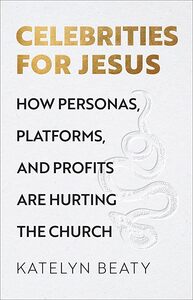 Katelyn Beaty
Katelyn Beaty
Journalist Katelyn Beaty writes about how the cult of celebrity has gradually warped well-meaning evangelical preachers. In her book Christians for Jesus, she talks of how Billy Graham, the iconic evangelist famous for his crusades, was one of the first preachers to latch on to radio and television to “spread the word”. “Even as he resisted celebrity, his approach to ministry helped fuel the dynamics of celebrity that now pervade evangelicalism,” she writes.
Publishers Weekly starred review "A must-read for anyone invested in the fate of evangelicalism."--Publishers Weekly Many Christian leaders use their fame and influence to great effect. Whether that popularity resides at the local church level or represents national or international influence, many leaders have effectively said to their followers, "Follow me as I follow Christ." But fame that is cultivated for its own sake, without attendant spiritual maturity and accountability, has a shadow side that runs counter to the heart of the gospel. Celebrity--defined as social power without proximity--has led to abuses of power, the cultivation of persona, and a fixation on profits. In light of the fall of famous Christian leaders in recent years, the time has come for the church to reexamine its relationship to celebrity. Award-winning journalist Katelyn Beaty explores the ways fame has reshaped the American church, explains how and why celebrity is woven into the fabric of the evangelical movement, and identifies many ways fame has gone awry in recent years. She shows us how evangelical culture is uniquely attracted to celebrity gurus over and against institutions, and she offers a renewed vision of ordinary faithfulness, helping us all keep fame in its proper place.
Publishers Weekly starred review "A must-read for anyone invested in the fate of evangelicalism."--Publishers Weekly Many Christian leaders use their fame and influence to great effect. Whether that popularity resides at the local church level or represents national or international influence, many leaders have effectively said to their followers, "Follow me as I follow Christ." But fame that is cultivated for its own sake, without attendant spiritual maturity and accountability, has a shadow side that runs counter to the heart of the gospel. Celebrity--defined as social power without proximity--has led to abuses of power, the cultivation of persona, and a fixation on profits. In light of the fall of famous Christian leaders in recent years, the time has come for the church to reexamine its relationship to celebrity. Award-winning journalist Katelyn Beaty explores the ways fame has reshaped the American church, explains how and why celebrity is woven into the fabric of the evangelical movement, and identifies many ways fame has gone awry in recent years. She shows us how evangelical culture is uniquely attracted to celebrity gurus over and against institutions, and she offers a renewed vision of ordinary faithfulness, helping us all keep fame in its proper place.
- Publisher : Brazos Press, Div of Baker Publishing Group (16 August 2022)
- Language : English
- Hardcover : 208 pages
- ISBN-10 : 1587435187
- ISBN-13 : 978-1587435188
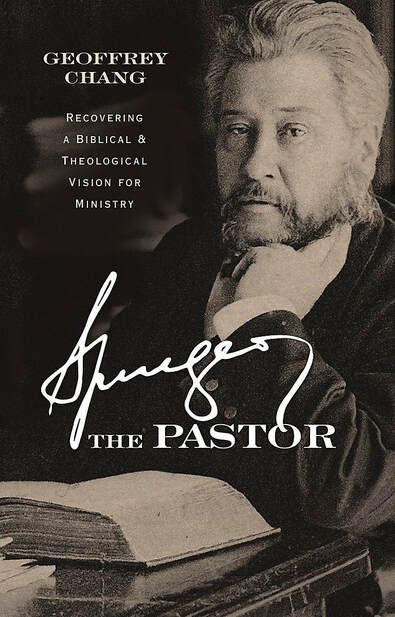 Spurgeon the Pastor by Geoff Chang
Spurgeon the Pastor by Geoff Chang
3 Reasons Why We Should Listen to Spurgeon Today:
1. Spurgeon pastored amid an active ministry. His 63 volumes of published sermons make it clear that the heart of Spurgeon’s ministry was preaching, and this kept him busy. From his earliest days at Waterbeach, he would regularly preach eight times a week (three sermons on Sunday and five nights a week). After a few years in London, the demand for his preaching was so great that he found himself preaching as much as twelve or thirteen times a week. But as busy as Spurgeon was, he was more than just a preacher. He gave oversight to at least sixty-six institutions that existed out of the Metropolitan Tabernacle, including two orphanages, the Pastors’ College, numerous Bible classes, Sunday schools, and more. We also can’t forget the incessant deadlines of his weekly sermon publications, monthly magazine, unending correspondence, and many book projects. But as important and fruitful as those ministries were, Spurgeon was more than just a ministry director and administrator. Spurgeon was a pastor. He took responsibility for a church and sought to care for his flock. Busy-ness was no excuse to neglect his pastoral responsibilities.
So, why should we listen to Spurgeon? For the church leader with thousands of responsibilities, we need Spurgeon to remind us of the importance of our calling as pastors and to encourage us to persevere in faithfulness.
2. Spurgeon pastored amid a revival. When Spurgeon first arrived in London, the congregation of the New Park Street Chapel had dwindled to a few dozen. Sitting in a cavernous building that seated over a thousand, Spurgeon may have thought he had plenty of room to expand. But in just a few months, the whole city was stirred at the news of the boy-preacher from the fens. The roads and bridges leading to Spurgeon’s chapel were blocked by traffic each Sunday. Before long, the congregation outgrew their space and needed to expand. During construction, Spurgeon rented large venues, like Exeter Hall and the Surrey Gardens Music Hall, to accommodate the growing crowds, but hundreds were still being turned away. And as the building expansion finished, the congregation once again outgrew their space.
The challenge of space vexed Spurgeon. But this wasn’t about drawing the largest crowd possible. Instead, this was Spurgeon’s recognition that he was the pastor of a church, not an itinerant preacher. At one point, he lamented how membership had exceeded the seating at the New Park Street Chapel by 300, which meant that if they were to observe the Lord’s Supper in their building, 300 members would not be able to participate. Not only that but with so many being converted, Spurgeon feared that he could not responsibly bring them into church membership and care for them properly. The only options he could think of was to either build a larger building or quit the pastorate altogether and become a traveling evangelist. But his congregation did not let him quit. They would approve the construction of a new building, seating well over 5,000. Even as church membership grew from 50 to 5,000, Spurgeon’s view of pastoral ministry remained the same.
Why should we listen to Spurgeon? For pastors of large churches who are tempted to compromise their ecclesiology, Spurgeon offers an example of faithfulness even amid rapid growth.
3. Spurgeon pastored amid numerous societal and theological challenges. As the most famous pastor of the English-speaking world, people wanted Spurgeon’s opinions on everything. Living in London during the Victorian era at the height of British imperialism, there were no shortage of societal and theological issues to discuss. From Darwinism to American slavery, from cholera outbreaks to the industrial revolution, from international wars to the temperance movement, from women’s suffrage to state religion, and much, much more, Spurgeon had plenty to distract him from his pastoral ministry. To be clear, Spurgeon commented on many of these issues through his magazine and public correspondence, sometimes at great cost to himself. Still, Spurgeon understood that he was not responsible for pastoring the entire English-speaking world. His responsibility lay with the members of the Metropolitan Tabernacle. Even as Spurgeon engaged prophetically in the world around him, he never lost sight that his responsibility was for the members of his local church.
Why should we listen to Spurgeon? Even as we face controversies in our day, Spurgeon provides a model for faithfully pastoring our congregations through those challenges.
Undoubtedly, Spurgeon was firmly situated in his Victorian context, and we should not try to mechanically transplant his practices into our context. However, what Spurgeon provides for us is an example of a pastor who faced all the challenges of pastoral ministry, and yet was firmly committed to pastoring his church based on biblical and theological convictions. In this, we can all learn from Spurgeon the pastor.
Excerpted from Spurgeon the Pastor by Geoff Chang. Copyright 2022, B&H Publishing.
1. Spurgeon pastored amid an active ministry. His 63 volumes of published sermons make it clear that the heart of Spurgeon’s ministry was preaching, and this kept him busy. From his earliest days at Waterbeach, he would regularly preach eight times a week (three sermons on Sunday and five nights a week). After a few years in London, the demand for his preaching was so great that he found himself preaching as much as twelve or thirteen times a week. But as busy as Spurgeon was, he was more than just a preacher. He gave oversight to at least sixty-six institutions that existed out of the Metropolitan Tabernacle, including two orphanages, the Pastors’ College, numerous Bible classes, Sunday schools, and more. We also can’t forget the incessant deadlines of his weekly sermon publications, monthly magazine, unending correspondence, and many book projects. But as important and fruitful as those ministries were, Spurgeon was more than just a ministry director and administrator. Spurgeon was a pastor. He took responsibility for a church and sought to care for his flock. Busy-ness was no excuse to neglect his pastoral responsibilities.
So, why should we listen to Spurgeon? For the church leader with thousands of responsibilities, we need Spurgeon to remind us of the importance of our calling as pastors and to encourage us to persevere in faithfulness.
2. Spurgeon pastored amid a revival. When Spurgeon first arrived in London, the congregation of the New Park Street Chapel had dwindled to a few dozen. Sitting in a cavernous building that seated over a thousand, Spurgeon may have thought he had plenty of room to expand. But in just a few months, the whole city was stirred at the news of the boy-preacher from the fens. The roads and bridges leading to Spurgeon’s chapel were blocked by traffic each Sunday. Before long, the congregation outgrew their space and needed to expand. During construction, Spurgeon rented large venues, like Exeter Hall and the Surrey Gardens Music Hall, to accommodate the growing crowds, but hundreds were still being turned away. And as the building expansion finished, the congregation once again outgrew their space.
The challenge of space vexed Spurgeon. But this wasn’t about drawing the largest crowd possible. Instead, this was Spurgeon’s recognition that he was the pastor of a church, not an itinerant preacher. At one point, he lamented how membership had exceeded the seating at the New Park Street Chapel by 300, which meant that if they were to observe the Lord’s Supper in their building, 300 members would not be able to participate. Not only that but with so many being converted, Spurgeon feared that he could not responsibly bring them into church membership and care for them properly. The only options he could think of was to either build a larger building or quit the pastorate altogether and become a traveling evangelist. But his congregation did not let him quit. They would approve the construction of a new building, seating well over 5,000. Even as church membership grew from 50 to 5,000, Spurgeon’s view of pastoral ministry remained the same.
Why should we listen to Spurgeon? For pastors of large churches who are tempted to compromise their ecclesiology, Spurgeon offers an example of faithfulness even amid rapid growth.
3. Spurgeon pastored amid numerous societal and theological challenges. As the most famous pastor of the English-speaking world, people wanted Spurgeon’s opinions on everything. Living in London during the Victorian era at the height of British imperialism, there were no shortage of societal and theological issues to discuss. From Darwinism to American slavery, from cholera outbreaks to the industrial revolution, from international wars to the temperance movement, from women’s suffrage to state religion, and much, much more, Spurgeon had plenty to distract him from his pastoral ministry. To be clear, Spurgeon commented on many of these issues through his magazine and public correspondence, sometimes at great cost to himself. Still, Spurgeon understood that he was not responsible for pastoring the entire English-speaking world. His responsibility lay with the members of the Metropolitan Tabernacle. Even as Spurgeon engaged prophetically in the world around him, he never lost sight that his responsibility was for the members of his local church.
Why should we listen to Spurgeon? Even as we face controversies in our day, Spurgeon provides a model for faithfully pastoring our congregations through those challenges.
Undoubtedly, Spurgeon was firmly situated in his Victorian context, and we should not try to mechanically transplant his practices into our context. However, what Spurgeon provides for us is an example of a pastor who faced all the challenges of pastoral ministry, and yet was firmly committed to pastoring his church based on biblical and theological convictions. In this, we can all learn from Spurgeon the pastor.
Excerpted from Spurgeon the Pastor by Geoff Chang. Copyright 2022, B&H Publishing.
May 24, 2023: Ad Fontes: Can A “Christian Nation” Be Good For Everybody?
Mark David Hall’s new book Proclaim Liberty Throughout All the Land: How Christianity Has Advanced Freedom and Equality for All Americans (Fidelis Books, 2023) seeks to remind us of this shared history. Hall, a Professor of Politics at George Fox University and a Visiting Fellow at Princeton University’s James Madison Program, is no stranger to his subject matter, having written or edited books on America’s Christian founding, on faith and the founders, and on religion and public life in the founding era. The best way to read this new work is to understand that Hall is making an argument. That is to say, Hall does not attempt anything like a comprehensive analysis of freedom and equality in American life, nor does he seek to provide an exhaustive evaluation of Christianity’s contribution to public life in America.
Mark David Hall’s new book Proclaim Liberty Throughout All the Land: How Christianity Has Advanced Freedom and Equality for All Americans (Fidelis Books, 2023) seeks to remind us of this shared history. Hall, a Professor of Politics at George Fox University and a Visiting Fellow at Princeton University’s James Madison Program, is no stranger to his subject matter, having written or edited books on America’s Christian founding, on faith and the founders, and on religion and public life in the founding era. The best way to read this new work is to understand that Hall is making an argument. That is to say, Hall does not attempt anything like a comprehensive analysis of freedom and equality in American life, nor does he seek to provide an exhaustive evaluation of Christianity’s contribution to public life in America.
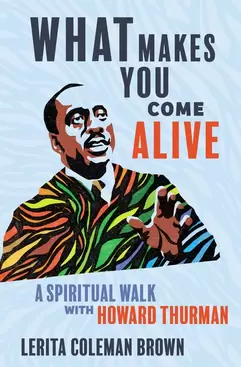 What Makes You Come Alive
What Makes You Come Alive
April 23, 2023: The Living Church: Learning from Martin Luther King’s Mentor
Those familiar with the late Howard Thurman know that he was considered the spiritual director of the civil rights movement and that Martin Luther King Jr. carried Jesus and the Disinherited in his coat pocket while marching for social change. “Part of Howard Thurman’s response to God was to provide the spiritual and philosophical underpinnings for the work that calls people to action,” Lerita Coleman Brown writes.
Coleman Brown relates how racism was a very real presence throughout Thurman’s life, but through the spiritual nurturing of his mother and grandmother, a former slave who could not read, he learned to know the Creator of the universe by reading Scripture and by being in nature. As a young boy he found that silence and solitude were important spiritual disciplines that enabled him to “center down” and commune with the Transcendent. Coleman Brown relates how her introduction to this important figure legitimized her questions about the lack of Black and Brown voices in the contemplative stream of Christianity.
Thurman observed that Jesus was a contemplative, as he often prayed alone in the early morning or late in the day after the crowds had gone away: “This was the time for the long breath, when all the fragments left by the commonplace, when all the hurts and the big aches could be absorbed, and the mind could be freed of the immediate demand, when voices that had been quieted by the long day’s work could once more be heard, when there could be the deep sharing of the innermost secrets and the laying bare of the heart and mind.” Thurman’s words are seamlessly woven into the text throughout the book.
Each chapter discusses an aspect of Thurman’s core beliefs, and relates them to Coleman Brown’s experiences of living as a Black woman in the United States. Coleman Brown relates the importance of Thurman’s beliefs to everyday spiritual seekers. She teaches that deep connection with the living God is not just for monks, but for everyone. Thurman’s belief that everyone is a holy child of God, spiritually and psychologically, anchors us in all areas of life. She expands on this theme: “Inner Authority does not emerge from us, but from Spirit within,” and “beneath all our ego desires — for importance, fortune, power, and possessions — is a hunger for our Creator.”
Each chapter ends with reflection questions and spiritual steps, which would be very useful in an individual or group study. This book taught me more about Thurman, one of the most important and yet less-known leaders of the 20th-century American church. But more than that, it made me think and feel deeply about the different aspects of Thurman’s doctrine, and how being a holy child of God plays out in my life. I hope many read this book and have the same experience. --Living Church
Those familiar with the late Howard Thurman know that he was considered the spiritual director of the civil rights movement and that Martin Luther King Jr. carried Jesus and the Disinherited in his coat pocket while marching for social change. “Part of Howard Thurman’s response to God was to provide the spiritual and philosophical underpinnings for the work that calls people to action,” Lerita Coleman Brown writes.
Coleman Brown relates how racism was a very real presence throughout Thurman’s life, but through the spiritual nurturing of his mother and grandmother, a former slave who could not read, he learned to know the Creator of the universe by reading Scripture and by being in nature. As a young boy he found that silence and solitude were important spiritual disciplines that enabled him to “center down” and commune with the Transcendent. Coleman Brown relates how her introduction to this important figure legitimized her questions about the lack of Black and Brown voices in the contemplative stream of Christianity.
Thurman observed that Jesus was a contemplative, as he often prayed alone in the early morning or late in the day after the crowds had gone away: “This was the time for the long breath, when all the fragments left by the commonplace, when all the hurts and the big aches could be absorbed, and the mind could be freed of the immediate demand, when voices that had been quieted by the long day’s work could once more be heard, when there could be the deep sharing of the innermost secrets and the laying bare of the heart and mind.” Thurman’s words are seamlessly woven into the text throughout the book.
Each chapter discusses an aspect of Thurman’s core beliefs, and relates them to Coleman Brown’s experiences of living as a Black woman in the United States. Coleman Brown relates the importance of Thurman’s beliefs to everyday spiritual seekers. She teaches that deep connection with the living God is not just for monks, but for everyone. Thurman’s belief that everyone is a holy child of God, spiritually and psychologically, anchors us in all areas of life. She expands on this theme: “Inner Authority does not emerge from us, but from Spirit within,” and “beneath all our ego desires — for importance, fortune, power, and possessions — is a hunger for our Creator.”
Each chapter ends with reflection questions and spiritual steps, which would be very useful in an individual or group study. This book taught me more about Thurman, one of the most important and yet less-known leaders of the 20th-century American church. But more than that, it made me think and feel deeply about the different aspects of Thurman’s doctrine, and how being a holy child of God plays out in my life. I hope many read this book and have the same experience. --Living Church
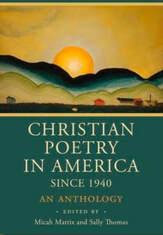
- Christian Poetry in America since 1940 by Micah Mattix (Spectrum)
- The title is misleading, in that the anthology contains poems by poets born in 1940 or later, almost all still alive; the poems themselves were published mostly from about 1980 to 2020, a welcome up-to-date collection of “Christian” poems. The editors explain that while there could be several ways of defining “Christian,” they mean poems that are “distinctly Christian in subject matter”
- Scott Cairns’s “Possible Answers to Prayer” imagines God responding to the all-too-human prayers of someone perhaps like you or me. In each of six three-line stanzas God gently affirms the speaker while correcting flaws in matters like the speaker’s inadequate repentance and “intermittent concern for the sick.” The real kicker comes in the last two stanzas, where God notes the speaker’s “lipsmackingly righteous indignation” toward those who annoy him and tells the speaker “with what fervor I adore/precisely these, the several who rouse your passions.” It’s a salutary reminder of how differently from us God may see others–in his wisdom and comprehensive perspective–and how reticent we ought to be in assuming that we have the truth about them. It’s a poem crafted with great artistry, eliciting humility in the reader and awe at God’s patient lovingkindness with us.
- Publisher : Iron Pen (September 6, 2022)
- Language : English
- Hardcover : 208 pages
- ISBN-10 : 1640608125
- ISBN-13 : 978-1640608122

April 27, 2023: 9 Marks: Book Review: Empires of Dirt, by Douglas Wilson
As our public discourse has become more polarized and politicized, calls for Christian nationalism have begun to resonate with well-meaning believers. Doug Wilson’s Empires of Dirt reads like a manifesto. His “Mere Christendom” is not as mere as it appears.
Wilson begins by reminding us that public secularism is not religiously neutral. “Soft socialism” has advanced its own salvation narrative (8, 9). American Zionism and Exceptionalism were idols. And compassionate conservatism was never a convincing stand-in for Christianity. But raw secularism looks like the last man standing in the public square, and it leaves the state (apparently) answerable to no one. Whither then a Christian public theology?
As our public discourse has become more polarized and politicized, calls for Christian nationalism have begun to resonate with well-meaning believers. Doug Wilson’s Empires of Dirt reads like a manifesto. His “Mere Christendom” is not as mere as it appears.
Wilson begins by reminding us that public secularism is not religiously neutral. “Soft socialism” has advanced its own salvation narrative (8, 9). American Zionism and Exceptionalism were idols. And compassionate conservatism was never a convincing stand-in for Christianity. But raw secularism looks like the last man standing in the public square, and it leaves the state (apparently) answerable to no one. Whither then a Christian public theology?
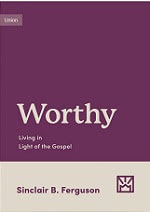
May 1, 2023: Book Reviews from an Avid Reader: Worthy by Sinclair B Ferguson Book Review
This is not a how to book. It is rather a meditation on living a life reflecting the gospel and Christ. Ferguson helps us see how God works in our lives to bring this about, by His providence and by His Word. Our model is Jesus. An essential element is humility. We are given the example of Paul and his focus to know Christ and be like Him. (Phil. 3:8,10) Everything else is loss.
This is not a how to book. It is rather a meditation on living a life reflecting the gospel and Christ. Ferguson helps us see how God works in our lives to bring this about, by His providence and by His Word. Our model is Jesus. An essential element is humility. We are given the example of Paul and his focus to know Christ and be like Him. (Phil. 3:8,10) Everything else is loss.
Nov 28, 2022: Gospel Coalition: The Rise of Right-Wing Wokeism
Review: ‘The Case for Christian Nationalism’ by Stephen Wolfe
Review: ‘The Case for Christian Nationalism’ by Stephen Wolfe
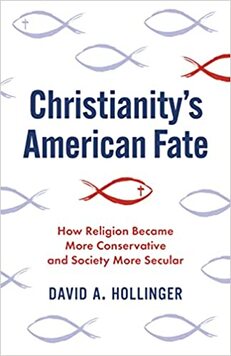
Tracing the rise of evangelicalism and the decline of mainline Protestantism in American religious and cultural life
How did American Christianity become synonymous with conservative white evangelicalism? This sweeping work by a leading historian of modern America traces the rise of the evangelical movement and the decline of mainline Protestantism’s influence on American life. In Christianity’s American Fate, David Hollinger shows how the Protestant establishment, adopting progressive ideas about race, gender, sexuality, empire, and divinity, liberalized too quickly for some and not quickly enough for others. After 1960, mainline Protestantism lost members from both camps―conservatives to evangelicalism and progressives to secular activism. A Protestant evangelicalism that was comfortable with patriarchy and white supremacy soon became the country’s dominant Christian cultural force.
Hollinger explains the origins of what he calls Protestantism’s “two-party system” in the United States, finding its roots in America’s religious culture of dissent, as established by seventeenth-century colonists who broke away from Europe’s religious traditions; the constitutional separation of church and state, which enabled religious diversity; and the constant influx of immigrants, who found solidarity in churches. Hollinger argues that the United States became not only overwhelmingly Protestant but Protestant on steroids. By the 1960s, Jews and other non-Christians had diversified the nation ethnoreligiously, inspiring more inclusive notions of community. But by embracing a socially diverse and scientifically engaged modernity, Hollinger tells us, ecumenical Protestants also set the terms by which evangelicals became reactionary. (Princeton University Press - October 11, 2022)
How did American Christianity become synonymous with conservative white evangelicalism? This sweeping work by a leading historian of modern America traces the rise of the evangelical movement and the decline of mainline Protestantism’s influence on American life. In Christianity’s American Fate, David Hollinger shows how the Protestant establishment, adopting progressive ideas about race, gender, sexuality, empire, and divinity, liberalized too quickly for some and not quickly enough for others. After 1960, mainline Protestantism lost members from both camps―conservatives to evangelicalism and progressives to secular activism. A Protestant evangelicalism that was comfortable with patriarchy and white supremacy soon became the country’s dominant Christian cultural force.
Hollinger explains the origins of what he calls Protestantism’s “two-party system” in the United States, finding its roots in America’s religious culture of dissent, as established by seventeenth-century colonists who broke away from Europe’s religious traditions; the constitutional separation of church and state, which enabled religious diversity; and the constant influx of immigrants, who found solidarity in churches. Hollinger argues that the United States became not only overwhelmingly Protestant but Protestant on steroids. By the 1960s, Jews and other non-Christians had diversified the nation ethnoreligiously, inspiring more inclusive notions of community. But by embracing a socially diverse and scientifically engaged modernity, Hollinger tells us, ecumenical Protestants also set the terms by which evangelicals became reactionary. (Princeton University Press - October 11, 2022)
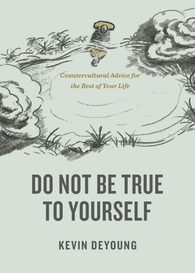
May 16, 2023; Crossway Books:
Countercultural Yet Biblical Advice for High School and College Students, Ideal for Graduation and Birthday Gifts
Most speeches addressed to high school and college students follow a similar theme: march to the beat of your own drum. This may sound encouraging on the surface, but Scripture exhorts believers to submit their lives to the will of God, not their own desires. Christian students need gospel-centered truth to guide them on their journey toward independence.
In this collection of inspiring sermons and graduation speeches, Kevin DeYoung delivers a motivational, biblical call to young people: serve God faithfully―and if necessary, counter-culturally―in the next season of your life. Do Not Be True to Yourself includes practical advice for cultivating a Christ-centered worldview in every area of adult life, including relationships, work, church participation, and spiritual growth, making it a transformational resource for mentoring students.
Countercultural Yet Biblical Advice for High School and College Students, Ideal for Graduation and Birthday Gifts
Most speeches addressed to high school and college students follow a similar theme: march to the beat of your own drum. This may sound encouraging on the surface, but Scripture exhorts believers to submit their lives to the will of God, not their own desires. Christian students need gospel-centered truth to guide them on their journey toward independence.
In this collection of inspiring sermons and graduation speeches, Kevin DeYoung delivers a motivational, biblical call to young people: serve God faithfully―and if necessary, counter-culturally―in the next season of your life. Do Not Be True to Yourself includes practical advice for cultivating a Christ-centered worldview in every area of adult life, including relationships, work, church participation, and spiritual growth, making it a transformational resource for mentoring students.
- Written by Kevin DeYoung: Pastor and bestselling author shares relevant wisdom from past commencement speeches and sermons
- Concise, Engaging Chapters of Counter-Cultural Advice: Christ-centered guidance that includes developing spiritual habits, prioritizing church attendance, fighting sexual sin, and temptation, and making godly decisions. Perfect for graduation gifts, birthdays, or small group discussion
- Includes Reading Guide: DeYoung suggests 12 classic Christian books every person should read, from writers including John Calvin, G. K. Chesterton, and R. C. Sproul
May 2, 2023: Religion News Service: Can evangelicalism survive its white, straight, conservative victory?
This straightening of the movement is the subject of “The Other Evangelicals,” a new alternative history by Union Theological Seminary professor Isaac Sharp, who writes, “The big tent of evangelicalism has historically been much bigger than we’ve been led to believe.”
This straightening of the movement is the subject of “The Other Evangelicals,” a new alternative history by Union Theological Seminary professor Isaac Sharp, who writes, “The big tent of evangelicalism has historically been much bigger than we’ve been led to believe.”
 Xulon Press (January 29, 2008)
Xulon Press (January 29, 2008)
Beyond The Anointing by Bishop Otis G Rankin Jr
Oh, God! Where are You?
The Body of Christ has reached a point where everything is being labeled "anointed." This has caused many believers to become stagnant and complacent. But there is a remnant of frustrated and disgruntled believers who are searching for something more than the hype of what has been labeled as "anointed services." They are crying out for more than what the Body of Christ is offering them now. But how can the Body of Christ take someone beyond his or her present limitations? The answer can only be found at the feet of Jesus, where our limitations meet His infinite wisdom and where our anointing takes backstage to the Anointed One. This is the place where His manifest presence can be found. Are you ready for this? If your answer is "yes," let God take you to that place
Oh, God! Where are You?
The Body of Christ has reached a point where everything is being labeled "anointed." This has caused many believers to become stagnant and complacent. But there is a remnant of frustrated and disgruntled believers who are searching for something more than the hype of what has been labeled as "anointed services." They are crying out for more than what the Body of Christ is offering them now. But how can the Body of Christ take someone beyond his or her present limitations? The answer can only be found at the feet of Jesus, where our limitations meet His infinite wisdom and where our anointing takes backstage to the Anointed One. This is the place where His manifest presence can be found. Are you ready for this? If your answer is "yes," let God take you to that place
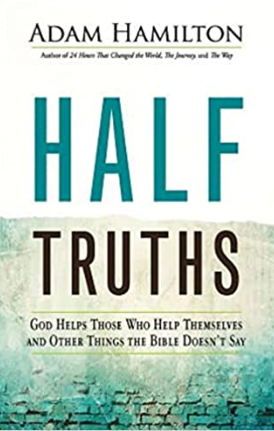 Abingdon Press (April 1, 2016)
Abingdon Press (April 1, 2016)
(April 1, 2016)
“Suffering is not God’s desire for us, but it occurs in the process of life. Suffering is not given to teach us something, but through it we may learn. Suffering is not given to punish us, but sometimes it is the consequence of our sin or poor judgment. Suffering does not occur because our faith is weak, but through it our faith may be strengthened. God does not depend on human suffering to achieve his purposes, but sometimes through suffering his purposes are achieved. Suffering can either destroy us, or it can add meaning to our life.”
― Adam Hamilton, Half Truths: God Helps Those Who Help Themselves and Other Things the Bible Doesn't Say
Pastor Adam Hamilton addresses five well-known sayings often misattributed to Christian Scripture: "Everything happens for a reason"; "God helps those who help themselves"; "God won't give you more than you can handle"; "God said it, I believe it, that settles it"; and "Love the sinner, hate the sin." These common statements, though they contain grains of truth, he writes, are not found in the Bible and can cause divide and create misrepresentation of Christ. He goes on to dissect each of these seemingly bland statements, offers real-life stories that help to clarify their meanings, and considers the principles within each statement from a biblical perspective, noting that taking them literally often falls short of Christ's teachings. Hamilton's work here is interesting and somewhat denser than the title suggests. Christians open to discovering inspiration in non-traditional sources will appreciate this fresh perspective on often misused aphorisms.
“Suffering is not God’s desire for us, but it occurs in the process of life. Suffering is not given to teach us something, but through it we may learn. Suffering is not given to punish us, but sometimes it is the consequence of our sin or poor judgment. Suffering does not occur because our faith is weak, but through it our faith may be strengthened. God does not depend on human suffering to achieve his purposes, but sometimes through suffering his purposes are achieved. Suffering can either destroy us, or it can add meaning to our life.”
― Adam Hamilton, Half Truths: God Helps Those Who Help Themselves and Other Things the Bible Doesn't Say
Pastor Adam Hamilton addresses five well-known sayings often misattributed to Christian Scripture: "Everything happens for a reason"; "God helps those who help themselves"; "God won't give you more than you can handle"; "God said it, I believe it, that settles it"; and "Love the sinner, hate the sin." These common statements, though they contain grains of truth, he writes, are not found in the Bible and can cause divide and create misrepresentation of Christ. He goes on to dissect each of these seemingly bland statements, offers real-life stories that help to clarify their meanings, and considers the principles within each statement from a biblical perspective, noting that taking them literally often falls short of Christ's teachings. Hamilton's work here is interesting and somewhat denser than the title suggests. Christians open to discovering inspiration in non-traditional sources will appreciate this fresh perspective on often misused aphorisms.
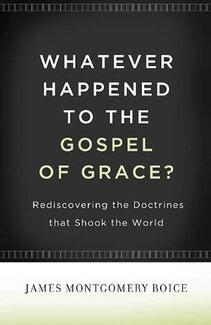
Feb 22, 2023: Reformanda: What Happened to the Gospel of Grace?
Not long ago, I picked up a book by James Montgomery Boice titled Whatever Happened to the Gospel of Grace? Boice was one of the greatest evangelical leaders of the 20th century. He pastored 10th Street Presbyterian Church in Philadelphia, Pennsylvania. In 2000, he announced to his church that he had cancer and he died a few months later at the age of 62. He died June 15, 2000, and evangelicalism lost one of its most faithful leaders.
Not long ago, I picked up a book by James Montgomery Boice titled Whatever Happened to the Gospel of Grace? Boice was one of the greatest evangelical leaders of the 20th century. He pastored 10th Street Presbyterian Church in Philadelphia, Pennsylvania. In 2000, he announced to his church that he had cancer and he died a few months later at the age of 62. He died June 15, 2000, and evangelicalism lost one of its most faithful leaders.

Broadleaf Books (January 3, 2023)
Bardley Onishi makes the distinction between white evangelicalism and white Christian nationalism. While the terms are not the same, they are closely linked. Evangelicalism teaches that “the Bible is the errorless Word of God,” which “should be read and followed as literally as possible.” White Christian nationalism goes further, embracing the idea that America was founded as a Christian nation and, as such, is superior to all other nations, and one chosen by God to play a central role in world history. Other foundational components of Christian nationalism are nostalgia for past glory – when white men were most highly privileged – and an apocalyptic view of the nation’s future.
Onishi explains that white Christian nationalism is not so much an established ideology or a cogent theological belief system as it is a marker of cultural identity. And it doesn’t necessarily have anything to do with personal religious practice or identification with a specific denomination. This goes a long way to explaining the proliferation of Christian imagery and symbols at the Jan. 6 insurrection. Among the various religious banners on display, one of the most popular read “Jesus is My Savior – Trump is My President.”
How did things get to this point? Onishi points to the 1960s and the immense transformation of American society that decade ushered in. While many welcomed the achievements of the burgeoning civil rights movement, new freedom for women, and other sweeping changes, others did not.
For many, he writes, “the sixties were the time when numerous serpents tempted Americans away from the bedrock values of faith, family, and freedom and toward a new social order, a sexual revolution, and an abandonment of the nuclear family.”
The John Birch Society, an anticommunist organization steeped in libertarianism and informed by the idea that Christianity and American democracy are inextricably linked, was one of many organizations that flourished as a corrective to the sweeping changes of the 1960s, a counterrevolution held together by Christian identity.
In 1964, Barry Goldwater was able to tap into this reserve of white Christian nationalism and, much like Donald Trump 51 years later, became the unlikely Republican nominee for president. While his campaign against Lyndon Johnson went down in flames, his candidacy gave rise to the New Right, a grassroots coalition of American conservatives. In the late 1970s, the New Right joined forces with televangelist Jerry Falwell’s Religious Right and changed American politics by inspiring tens of millions of people of faith in the South, the Midwest, and the Sunbelt to vote for Ronald Reagan, the Republican presidential nominee, rather than Democrat Jimmy Carter. (Though Carter’s faith was without question, his politics did not fit the Religious Right’s agenda.)
By 1980, the extremism of Goldwater had become the mainstream of the GOP. Twenty-six years later, Onishi explains, when it came to voting for Donald Trump, Christian nationalists had a precedent in prioritizing politics over morals.
“[Trump] was not an imperfect candidate who somehow managed to garner the votes of White Christians. He was the prototype of the candidate White Christians had been searching for since the early 1960s,” Onishi writes.
Bardley Onishi makes the distinction between white evangelicalism and white Christian nationalism. While the terms are not the same, they are closely linked. Evangelicalism teaches that “the Bible is the errorless Word of God,” which “should be read and followed as literally as possible.” White Christian nationalism goes further, embracing the idea that America was founded as a Christian nation and, as such, is superior to all other nations, and one chosen by God to play a central role in world history. Other foundational components of Christian nationalism are nostalgia for past glory – when white men were most highly privileged – and an apocalyptic view of the nation’s future.
Onishi explains that white Christian nationalism is not so much an established ideology or a cogent theological belief system as it is a marker of cultural identity. And it doesn’t necessarily have anything to do with personal religious practice or identification with a specific denomination. This goes a long way to explaining the proliferation of Christian imagery and symbols at the Jan. 6 insurrection. Among the various religious banners on display, one of the most popular read “Jesus is My Savior – Trump is My President.”
How did things get to this point? Onishi points to the 1960s and the immense transformation of American society that decade ushered in. While many welcomed the achievements of the burgeoning civil rights movement, new freedom for women, and other sweeping changes, others did not.
For many, he writes, “the sixties were the time when numerous serpents tempted Americans away from the bedrock values of faith, family, and freedom and toward a new social order, a sexual revolution, and an abandonment of the nuclear family.”
The John Birch Society, an anticommunist organization steeped in libertarianism and informed by the idea that Christianity and American democracy are inextricably linked, was one of many organizations that flourished as a corrective to the sweeping changes of the 1960s, a counterrevolution held together by Christian identity.
In 1964, Barry Goldwater was able to tap into this reserve of white Christian nationalism and, much like Donald Trump 51 years later, became the unlikely Republican nominee for president. While his campaign against Lyndon Johnson went down in flames, his candidacy gave rise to the New Right, a grassroots coalition of American conservatives. In the late 1970s, the New Right joined forces with televangelist Jerry Falwell’s Religious Right and changed American politics by inspiring tens of millions of people of faith in the South, the Midwest, and the Sunbelt to vote for Ronald Reagan, the Republican presidential nominee, rather than Democrat Jimmy Carter. (Though Carter’s faith was without question, his politics did not fit the Religious Right’s agenda.)
By 1980, the extremism of Goldwater had become the mainstream of the GOP. Twenty-six years later, Onishi explains, when it came to voting for Donald Trump, Christian nationalists had a precedent in prioritizing politics over morals.
“[Trump] was not an imperfect candidate who somehow managed to garner the votes of White Christians. He was the prototype of the candidate White Christians had been searching for since the early 1960s,” Onishi writes.
Canon Fodder: Announcing My New Book: Bully Pulpit: Confronting the Problem of Spiritual Abuse in the Church 9.13.22

“An important way that a theological tradition such as Methodism can remain both a faithful witness in terms of its past heritage as well as relevant to the challenges of today is the frank recognition that this tradition has been called forth by God to participate in the broad, rich, and generous life of the church. . . Simply put, the church is never only about us or the present moment,” but about the whole sweep of the purposes of God through all the world -The Next Methodism: Theological, Social, and Missional Foundations for Global Methodism
April 11, 2022: Texas Monthly: How a Texas Monthly Writer Wound Up Writing Billy Graham’s Biography
William Martin’s journey from Rice professor to Billy Graham expert began with a simple assignment, one that would alter his life for decades to come.
William Martin’s journey from Rice professor to Billy Graham expert began with a simple assignment, one that would alter his life for decades to come.
Feb 24, 2022: Christianity Today: The Arc of White Evangelical Racism Is Long, but Complicated
The last several years have witnessed no small uptick in accessible academic books about evangelicals. Some of the most striking works have explored the political and racial history of the movement. This is evident in books like Jemar Tisby’s The Color of Compromise: The Truth About the American Church’s Complicity in Racism, John Fea’s Believe Me: The Evangelical Road to Donald Trump, and Thomas Kidd’s Who is an Evangelical?: The History of a Movement in Crisis.
The last several years have witnessed no small uptick in accessible academic books about evangelicals. Some of the most striking works have explored the political and racial history of the movement. This is evident in books like Jemar Tisby’s The Color of Compromise: The Truth About the American Church’s Complicity in Racism, John Fea’s Believe Me: The Evangelical Road to Donald Trump, and Thomas Kidd’s Who is an Evangelical?: The History of a Movement in Crisis.
| --Greenfield's First Law of Political Analysis.” ― Jeff Greenfield |
book banning
Feb 17, 2022: Baptist News Global: Everything you need to know about the rise in efforts to ban books from libraries
“We’re seeing an unprecedented volume of challenges in the fall of 2021,” Deborah Caldwell-Stone, director of the ALA’s office for intellectual freedom, said in late November. “In my 20 years with ALA, I can’t recall a time when we had multiple challenges coming in on a daily basis.”
“We’re seeing an unprecedented volume of challenges in the fall of 2021,” Deborah Caldwell-Stone, director of the ALA’s office for intellectual freedom, said in late November. “In my 20 years with ALA, I can’t recall a time when we had multiple challenges coming in on a daily basis.”
Jan 28, 2022: Allan R Bevere: If We're Going to Ban Offensive Books, Let's Start with the Bible
It is also important to mention that state representatives in Tennessee have made several attempts to make the Bible the official book of the Volunteer State, which highlights the ironic nature of irony. If Maus is a book to be kept from our children, then the Bible should have been banned first, not held up as some gold standard in children's literature. Allow me to cite just a few passages to make my point.
It is also important to mention that state representatives in Tennessee have made several attempts to make the Bible the official book of the Volunteer State, which highlights the ironic nature of irony. If Maus is a book to be kept from our children, then the Bible should have been banned first, not held up as some gold standard in children's literature. Allow me to cite just a few passages to make my point.
books: (Alphabetized by author)
a
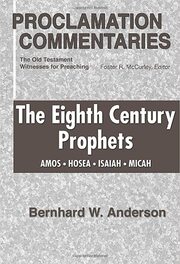
The Eighth Century Prophets: Amos, Hosea, Isaiah, Micah: The Old Testament Witnesses for Preaching
Bernhard Anderson has written a commentary that gives new perspective and clarity to the prophetic tradition and demonstrates the timely nature of the prophets' messages for today. 'The Eighth Century Prophets' treats the four Old Testament figures as a 'prophetic quartet' that produced a powerful and startling consensus about Israel's relationship to God and the world. The core of the prophetic message is shown to be both religious and political as Anderson describes and explains the great themes of Amos, Hosea, Isaiah, and Micah: divine judgment, the present and the future, justice and mercy, the covenant, walking humbly with God, and waiting for God. Included is a bibliography and time chart of Eighth Century Israel.
Bernhard Anderson has written a commentary that gives new perspective and clarity to the prophetic tradition and demonstrates the timely nature of the prophets' messages for today. 'The Eighth Century Prophets' treats the four Old Testament figures as a 'prophetic quartet' that produced a powerful and startling consensus about Israel's relationship to God and the world. The core of the prophetic message is shown to be both religious and political as Anderson describes and explains the great themes of Amos, Hosea, Isaiah, and Micah: divine judgment, the present and the future, justice and mercy, the covenant, walking humbly with God, and waiting for God. Included is a bibliography and time chart of Eighth Century Israel.
b
Mar 29, 2022: Washington Examiner: The Mothers and Daughters of the Bible Speak: Lessons on Faith From Nine Biblical Families
Bream’s first book in the Women of the Bible Speak series, The Wisdom of 16 Women and Their Lessons for Today, was released in March 2021 and appeared on the New York Times bestseller list for 15 weeks in a row.
“It’s striking to me that these women are so relatable, all these centuries later,” Bream told the Washington Examiner. “Like us, they make good and bad decisions. Some endure trials and suffering that are hard to understand, but what’s consistent through all the stories is that God was working the entire time.”
Bream’s first book in the Women of the Bible Speak series, The Wisdom of 16 Women and Their Lessons for Today, was released in March 2021 and appeared on the New York Times bestseller list for 15 weeks in a row.
“It’s striking to me that these women are so relatable, all these centuries later,” Bream told the Washington Examiner. “Like us, they make good and bad decisions. Some endure trials and suffering that are hard to understand, but what’s consistent through all the stories is that God was working the entire time.”
Jan 20, 2022: Denison Forum: A balanced review of “Fault Lines,” Voddie Baucham’s critique of modern social justice
Voddie T. Baucham Jr.’s Fault Lines: The Social Justice Movement and Evangelicalism’s Looming Catastrophe provides an in-depth perspective on how social justice has divided our culture, our country, and the church, and how the tenets of modern social justice employ narratives that do not match with evidence.
Voddie T. Baucham Jr.’s Fault Lines: The Social Justice Movement and Evangelicalism’s Looming Catastrophe provides an in-depth perspective on how social justice has divided our culture, our country, and the church, and how the tenets of modern social justice employ narratives that do not match with evidence.
c
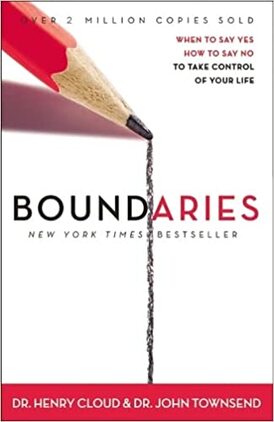
Having clear boundaries is essential to a healthy, balanced lifestyle. A boundary is a personal property line that marks those things for which we are responsible. In other words, boundaries define who we are and who we are not. Boundaries impact all areas of our lives: Physical boundaries help us determine who may touch us and under what circumstances -- Mental boundaries give us the freedom to have our own thoughts and opinions -- Emotional boundaries help us to deal with our own emotions and disengage from the harmful, manipulative emotions of others -- Spiritual boundaries help us to distinguish God's will from our own and give us renewed awe for our Creator -- Often, Christians focus so much on being loving and unselfish that they forget their own limits and limitations. When confronted with their lack of boundaries, they ask:
- Can I set limits and still be a loving person?
- What are legitimate boundaries?
- What if someone is upset or hurt by my boundaries?
- How do I answer someone who wants my time, love, energy, or money?
- Aren't boundaries selfish?
- Why do I feel guilty or afraid when I consider setting boundaries?
Dr. Henry Cloud and Dr. John Townsend offer biblically-based answers to these and other tough questions, showing us how to set healthy boundaries with our parents, spouses, children, friends, co-workers, and even ourselves.
- Can I set limits and still be a loving person?
- What are legitimate boundaries?
- What if someone is upset or hurt by my boundaries?
- How do I answer someone who wants my time, love, energy, or money?
- Aren't boundaries selfish?
- Why do I feel guilty or afraid when I consider setting boundaries?
Dr. Henry Cloud and Dr. John Townsend offer biblically-based answers to these and other tough questions, showing us how to set healthy boundaries with our parents, spouses, children, friends, co-workers, and even ourselves.
- Publisher : Zondervan; Revised edition (April 1, 1992)
- Language : English
- Paperback : 320 pages
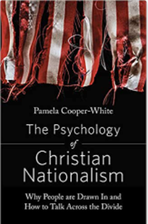
“When it comes to a firmly entrenched Christian nationalist, we do have to remember that we are trying to dispute not only an individual but their favorite TV network and the ever self-reinforcing bubble of opinion fed to them on social media through algorithms sifting through their clicks and likes, and the hundreds or even thousands of members of their church where they just praise Jesus and ask him to save the United States while listening to heart-thumping rock music and indoctrinating sermons,” Pamela Cooper-White said during an April 27 event celebrating the release of her new book, The Psychology of Christian Nationalism: Why People are Drawn In and How to Talk Across the Divide. -Jeff Brumly; Baptist News Global
d

We want the love of a mother, the love a father, the love of a friend, the love of a spouse, the love of someone. We want an enduring and unconditional love. Even the worst criminal locked up in prison longs for someone to love him. Have you ever thought about why? If the origin of the universe is an accident, and if through time and chance human beings are who they are, why do all people want to be loved? Further, we might also ask why all human love is ultimately disappointing. No spouse loves us exactly like we want. Too often family love erupts into friction and conflict. Friends fail us. We desperately want someone to love us perfectly. This is why loneliness is so painful. I have spoken often to my church and others about my struggles with loneliness through years of singleness (not that those two always go together, they just seem to for me). There is a palatable ache within that can wash over you like waves of despair. I could analyze it. I could philosophize about it. I could even teach on it. But I could not overcome it. Then I began to look at the pain from the perspective of beauty and to consider why I felt the way I did. I came to discover that loneliness was not an enemy but a friend. It is a painful reminder that I was not made for myself. I was made for Him, and the pain is God’s way of saying, “Here I am!” Loneliness has become a guide and a friend in my spiritual journey. When I feel lonely, I am feeling theology inside. All the pleasures, desires, and loves in this world will not take that pain away. We desperately want someone to love us perfectly, yet no one does. But when we wake up to the fact that no relationship can fully satisfy, we realize that we are lonely for God.”
–Steve DeWitt, Eyes Wide Open: Enjoying God in Everything.
–Steve DeWitt, Eyes Wide Open: Enjoying God in Everything.

"If God is simple, there can be no real distinction between his essence (or substantial form) and attributes… Properly speaking, God is good by virtue of God, not goodness. He is wise by virtue of God, not wisdom. He is powerful by virtue of God, not power. He is love by virtue of God, not love. And when we say that God is goodness itself, wisdom itself, power itself, and love itself, we do not mean that these are so many really distinct parts or forms in God, but simply that He is all that is involved in these terms by virtue of His own divine essence as such… There is nothing in God that is not identical with His divinity, nothing that is not just God Himself” (pp. 42, 43).
From "All That is In God" by James E Dolezal
From "All That is In God" by James E Dolezal
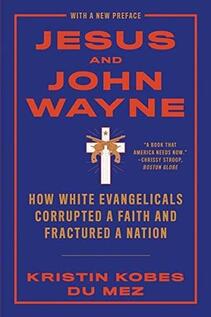
Kristin Kobes Du Mez’s ingeniously titled Jesus and John Wayne: How White Evangelicals Corrupted a Faith and Fractured a Nation left me with a similar, but more widespread, sense of disappointment in Christian men. Her book convincingly and methodically reveals how American evangelical culture—a loose consortium of pastors, speakers, booksellers, convention organizers, radio personalities, church planting networks, lay people, televangelists, con artists, and political advocates—discipled men into a toxic, twisted, even anti-Christian way to think about sex, gender, and power. It’s a brutal read, but for me it provided context for my disparate memories of the evangelical world’s attempt to synthesize masculinity and Christianity.
Du Mez shows how evangelical leaders over decades attempted to articulate and defend a certain vision of masculinity, one embodied by John Wayne (and intentionally projected by our former president). The Christian man, according to this vision, is a (white) American one; he gets things done; he isn’t afraid of a fight and getting his hands a little dirty; he believes boys should be boys; he drinks beer and he loves guns; he would beat up anybody who dared call him a sissy. He is a tough, frontier man, the good guy, who nobly uses violence when needed to defend women and children from the scary threats of outsiders, who generally are people of color (be they Native Americans, Mexicans, African-Americans, Muslims). Du Mez draws this convincing image from decades of popular evangelical books on masculinity, such as Bringing Up Boys by James Dobson and Wild at Heart by John Eldridge. She quotes the Baptist scholar Alan Bean as saying, “The unspoken mantra of post-war evangelicalism was simple: Jesus can save your soul; but John Wayne will save your ass.”
Du Mez narrates how the patriarchal theology of evangelicals, in which men were treated like kings and male pastors like God, created an environment conducive to the current scandals of abuse in the evangelical world (particularly in churches of the Southern Baptist Convention). The #ChurchToo movement, inspired by Hollywood’s #MeToo movement, revealed a church culture that permitted, covered up, and denied the very real abuse of women and children in the evangelical world.
While reading this book, there were many times I heard myself saying, “Not all people who call themselves evangelicals are this way!” I wondered if everyone mentioned in the book got a fair hearing, and there’s really no way for me to verify this one way or another. But the evidence Du Mez presents is overwhelming and convicting. It left me with a general sense of disgust and grief, and even a healthy sense of fear at how many have morally failed in this work of ministry. -Cambron Wright; Firebrand
Du Mez shows how evangelical leaders over decades attempted to articulate and defend a certain vision of masculinity, one embodied by John Wayne (and intentionally projected by our former president). The Christian man, according to this vision, is a (white) American one; he gets things done; he isn’t afraid of a fight and getting his hands a little dirty; he believes boys should be boys; he drinks beer and he loves guns; he would beat up anybody who dared call him a sissy. He is a tough, frontier man, the good guy, who nobly uses violence when needed to defend women and children from the scary threats of outsiders, who generally are people of color (be they Native Americans, Mexicans, African-Americans, Muslims). Du Mez draws this convincing image from decades of popular evangelical books on masculinity, such as Bringing Up Boys by James Dobson and Wild at Heart by John Eldridge. She quotes the Baptist scholar Alan Bean as saying, “The unspoken mantra of post-war evangelicalism was simple: Jesus can save your soul; but John Wayne will save your ass.”
Du Mez narrates how the patriarchal theology of evangelicals, in which men were treated like kings and male pastors like God, created an environment conducive to the current scandals of abuse in the evangelical world (particularly in churches of the Southern Baptist Convention). The #ChurchToo movement, inspired by Hollywood’s #MeToo movement, revealed a church culture that permitted, covered up, and denied the very real abuse of women and children in the evangelical world.
While reading this book, there were many times I heard myself saying, “Not all people who call themselves evangelicals are this way!” I wondered if everyone mentioned in the book got a fair hearing, and there’s really no way for me to verify this one way or another. But the evidence Du Mez presents is overwhelming and convicting. It left me with a general sense of disgust and grief, and even a healthy sense of fear at how many have morally failed in this work of ministry. -Cambron Wright; Firebrand
e
"Wild At Heart: Discovering the Secrets of a Man's Soul" by John Eldredge
Thomas Nelson Publishers 2001 ISBN: 0-7852-6883-9
Every man was once a boy. And every little has dreams, big dreams, dreams of being the hero, of beating the bad guys, of doing daring feats and rescuing the damsel in distress. Every little girl has dreams, too: of being rescued by her prince and swept up into a great adventure, knowing that she is the beauty.
But what happens to those dreams when we grow up? Walk into most churches, have a look around, and ask yourself: What is a Christian man? Without listening to what is said, look at what you find there. Most Christian men are…bored.John Eldredge revises and updates his bestselling, renowned Christian classic, Wild at Heart, and in it invites men to recover their masculine heart, defined in the image of a passionate God. And he invites women to discover the secret of a man’s soul and to delight in the strength and wildness men were created to offer.
Thomas Nelson Publishers 2001 ISBN: 0-7852-6883-9
Every man was once a boy. And every little has dreams, big dreams, dreams of being the hero, of beating the bad guys, of doing daring feats and rescuing the damsel in distress. Every little girl has dreams, too: of being rescued by her prince and swept up into a great adventure, knowing that she is the beauty.
But what happens to those dreams when we grow up? Walk into most churches, have a look around, and ask yourself: What is a Christian man? Without listening to what is said, look at what you find there. Most Christian men are…bored.John Eldredge revises and updates his bestselling, renowned Christian classic, Wild at Heart, and in it invites men to recover their masculine heart, defined in the image of a passionate God. And he invites women to discover the secret of a man’s soul and to delight in the strength and wildness men were created to offer.
f
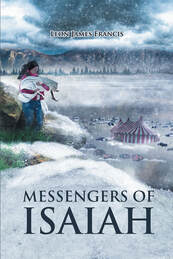
Leon James Francis, currently a judge in Southern California and formerly a U.S. Marine Corps officer, has completed his new book, “Messengers of Isaiah”: an inspirational story of the limitlessness of faith as experienced by one small, country church who dared to say yes to God when He called.
Francis shares, “It was Easter of 1994, and the congregation of Plains Community Baptist Church was celebrating the completion of the new temple, this sixty-one-member rural church had sacrificed twenty years to build. During their worship service, amid a storm, a man dressed a vagrant, whom no one knew or had ever seen, entered the auditorium unannounced and then marched uninvited directly to the front. To their mutual bewilderment, the stranger announced he was a messenger of God. He told them, “Destroy this church, and on the third day, God will raise it up greater than you could ever imagine.” They promptly threw him out. But after suffering a series of haunting dreams, suggesting the stranger was truly sent by God, they reluctantly but unanimously agreed to do as they believed God had commanded—by burning their beloved temple to the ground. However, on the third day, thereafter, the temple was not restored as prophesied but rather remained in ashes. Instead, what happened next was far more miraculous and mysterious and truly beyond their greatest imagination.”
Published by Covenant Books of Murrells Inlet, South Carolina, Leon James Francis’ new book tells of great miracles that come from trusting faith when acting upon a difficult, seemingly impossible calling from God.
Francis shares, “It was Easter of 1994, and the congregation of Plains Community Baptist Church was celebrating the completion of the new temple, this sixty-one-member rural church had sacrificed twenty years to build. During their worship service, amid a storm, a man dressed a vagrant, whom no one knew or had ever seen, entered the auditorium unannounced and then marched uninvited directly to the front. To their mutual bewilderment, the stranger announced he was a messenger of God. He told them, “Destroy this church, and on the third day, God will raise it up greater than you could ever imagine.” They promptly threw him out. But after suffering a series of haunting dreams, suggesting the stranger was truly sent by God, they reluctantly but unanimously agreed to do as they believed God had commanded—by burning their beloved temple to the ground. However, on the third day, thereafter, the temple was not restored as prophesied but rather remained in ashes. Instead, what happened next was far more miraculous and mysterious and truly beyond their greatest imagination.”
Published by Covenant Books of Murrells Inlet, South Carolina, Leon James Francis’ new book tells of great miracles that come from trusting faith when acting upon a difficult, seemingly impossible calling from God.
g
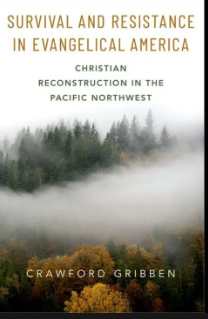
April 28, 2023: 9 Marks: Book Review: Survival and Resistance in Evangelical America, by Crawford Gribben
Amidst growing societal pressure and a waning consensus on the best manner of Christian political engagement, American evangelicals face a torrent of suggestions for how to relate to the public square. Some opt for direct action on local, state, and national levels. Others avoid such activism. Some seek to build think tanks, schools, and other institutions in global centers of power. Others call for a strategic retreat in order to build a new society. Each movement has its arguments and growing body of literature. But it’s this last group that forms the subject of Crawford Gribben’s Survival and Resistance in Evangelical America: Christian Reconstruction in the Pacific Northwest. What’s appealed to survivalists in previous generations has now found a following among American evangelicals. In particular, hundreds of evangelicals have moved northwest in the hopes of building a better society. |
Gribben’s description focuses on a few growing communities in the Pacific Northwest. Most notably—and, in Gribben’s view, the most successful—is the one in Moscow, Idaho led by Douglas Wilson and others. Through careful research and personal interviews, Gribben describes some of the history, beliefs, and challenges facing these communities, as well as the troubling past of similar movements. |
h
Jan 28, 2022: Nashville Pride: Critical Race Theory—banning of Black authors in schools, libraries, prisons
In the summer of 2020 and the aftermath of the murder of George Floyd, a major publishing house turned down the opportunity to obtain Headlee’s book Speaking of Race: Why Everybody Needs to Talk About Racism – and How to Do It.
The reason?
“They said they had enough books on race and that this topic is covered for us,” Headlee said. “It was very surprising since we were offering it in the summer of 2020.”
In the summer of 2020 and the aftermath of the murder of George Floyd, a major publishing house turned down the opportunity to obtain Headlee’s book Speaking of Race: Why Everybody Needs to Talk About Racism – and How to Do It.
The reason?
“They said they had enough books on race and that this topic is covered for us,” Headlee said. “It was very surprising since we were offering it in the summer of 2020.”
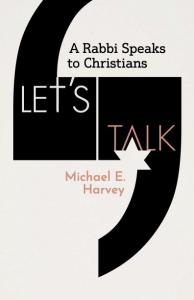
INDIANAPOLIS, IN, UNITED STATES, August 3, 2022 /EINPresswire.com/ -- Rabbi and Biblical scholar Michael E. Harvey has released his new book, Let’s Talk: A Rabbi Speaks to Christians. The book is designed for Christians to expand their knowledge about the Jewish aspects and roots of their faith. Most notably for current affairs, Let’s Talk addresses misconceptions, unintentional antisemitism in liturgy or interpretation, and draws beautiful comparisons between the two faiths. The text will empower and equip Christians with new and better ways to speak to American Jews and American Christians in a time of rising fundamentalism and antisemitism.
Let’s Talk: A Rabbi Speaks to Christians has become available at a time of great need, as Representative Marjorie Taylor Greene recently made headlines for her promotion of Christian nationalism, which is historically and intrinsically linked to antisemitism. The Anti-Defamation League reports that antisemitic incidents in the United States reached an all-time high in 2021, and unfortunately there is no sign that 2022 and beyond will be any safer.
Easy to read and use as a reference guide, the book can serve as a tool for Christian leaders and clergy who have seen antisemitism preached from the pulpit, helping identify the dangers and how to preach against such ideas. It is also useful for Christian laypeople seeking to unlearn latent antisemitism. The volume seeks to diminish conflict between Jews and Christians as it opens interfaith dialog and eases tensions from mistakes in the past.
Questions readers may be able to answer through Let’s Talk, include:
Why is there no such as thing as “Judeo-Christian values?”
What is the difference between the Judaism practiced by the historical Jesus and modern- day Judaism?
How does translation make Bible passages seem “clear” when their intended meaning is anything but?
Rabbi Harvey will be appearing at events in Louisville, Indianapolis, and Cincinnati in connection with the book’s release, with more dates to be added. Learn more at rabbimichaelharvey.com.
Let’s Talk: A Rabbi Speaks to Christians has become available at a time of great need, as Representative Marjorie Taylor Greene recently made headlines for her promotion of Christian nationalism, which is historically and intrinsically linked to antisemitism. The Anti-Defamation League reports that antisemitic incidents in the United States reached an all-time high in 2021, and unfortunately there is no sign that 2022 and beyond will be any safer.
Easy to read and use as a reference guide, the book can serve as a tool for Christian leaders and clergy who have seen antisemitism preached from the pulpit, helping identify the dangers and how to preach against such ideas. It is also useful for Christian laypeople seeking to unlearn latent antisemitism. The volume seeks to diminish conflict between Jews and Christians as it opens interfaith dialog and eases tensions from mistakes in the past.
Questions readers may be able to answer through Let’s Talk, include:
Why is there no such as thing as “Judeo-Christian values?”
What is the difference between the Judaism practiced by the historical Jesus and modern- day Judaism?
How does translation make Bible passages seem “clear” when their intended meaning is anything but?
Rabbi Harvey will be appearing at events in Louisville, Indianapolis, and Cincinnati in connection with the book’s release, with more dates to be added. Learn more at rabbimichaelharvey.com.
 Released March 2014
Released March 2014
June 18, 2014 (Books At a Glance) Michael Horton: "Calvin believed that it was not only wrong to contradict Scripture in doctrine and rules for worship and Christian living; he argued that the church has no authority to institute anything beyond Scripture in these areas. At the heart of Scripture is the gospel of God’s saving love in Jesus Christ, from Genesis to Revelation. Without coming to the end of our rope and casting ourselves entirely on God’s free mercy in Christ, “Christian living” will just be another form of idolatry and works-righteousness. Calvin is convinced that this heresy of self-chosen worship and self-salvation is what our fallen hearts gravitate toward naturally. Without understanding the gospel – Christ alone, Calvin emphasizes, we’ll never pray, worship, love, or bear the fruit of the Spirit. For Calvin, it’s not “the gospel vs. good works,” but “the gospel as the only basis for good works.”
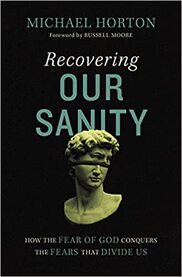
Recovering Our Sanity: How the Fear of God Conquers the Fears that Divide Us" by Westminster Seminary theologian Michael Horton.
“The fear of God is living with the grain of reality. … We did not make ourselves, so it is insane to live as though we could be whatever and whomever we choose. We do not belong to ourselves, but to God.”
“The Fear to End All Fears,” sets out the Scriptural basis for a proper fear of God.
“All of our fears come down to this one: we are afraid of Someone knowing our deepest secrets, cherished transgressions, and failures to fulfill our chief end.”
"Don’t mistake God’s kindness and patience as a sign that he is either unable or unwilling to unleash his wrath. Even now, there may be some reading this who have lived around Noah’s ark all your life, so to speak. You have camped around it and played in its shadow and on its scaffolding, even as this barge of salvation was being built. But you have never entered the ark. Like an old coin, your religion is something you carry around in your pocket. It even has an image of Christ, but this image has lost its embossing and is now faded."
“When we raise our eyes to heaven, something strange happens to us. Fears of our circumstances, including life, vocations, and the condition of the environment, are so moderated that we are able to engage in stewardship with hopeful responsibility instead of utopianism or despair.”
“The fear of God is living with the grain of reality. … We did not make ourselves, so it is insane to live as though we could be whatever and whomever we choose. We do not belong to ourselves, but to God.”
“The Fear to End All Fears,” sets out the Scriptural basis for a proper fear of God.
“All of our fears come down to this one: we are afraid of Someone knowing our deepest secrets, cherished transgressions, and failures to fulfill our chief end.”
"Don’t mistake God’s kindness and patience as a sign that he is either unable or unwilling to unleash his wrath. Even now, there may be some reading this who have lived around Noah’s ark all your life, so to speak. You have camped around it and played in its shadow and on its scaffolding, even as this barge of salvation was being built. But you have never entered the ark. Like an old coin, your religion is something you carry around in your pocket. It even has an image of Christ, but this image has lost its embossing and is now faded."
“When we raise our eyes to heaven, something strange happens to us. Fears of our circumstances, including life, vocations, and the condition of the environment, are so moderated that we are able to engage in stewardship with hopeful responsibility instead of utopianism or despair.”

What does it really mean to follow Jesus? Is it just a set of intellectual facts about the cross, forgiveness of sins, and an afterlife? Or is it something more than that? Why is it that the lives of Christians and those who are not Christians seem to look so similar at times in the Western world? If someone followed you around live-tweeting your daily decisions and values, who would they say that you follow? These are some of the questions Wes Hynd has been wrestling with for 15 years as he has sought to identify some of the ways in which Western culture has subtly influenced our Christian faith, including in our:
Time, Career, Family, Friendships, Money, and Emotions
Released date: December 1; 284 pages, trade paperback
Time, Career, Family, Friendships, Money, and Emotions
Released date: December 1; 284 pages, trade paperback
j
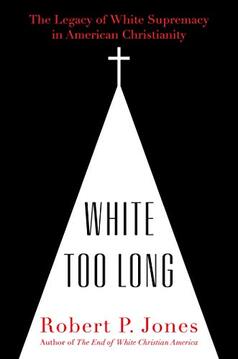
Drawing on history, public opinion surveys, and personal experience, Robert P. Jones delivers a provocative examination of the unholy relationship between American Christianity and white supremacy and issues an urgent call for white Christians to reckon with this legacy for the sake of themselves and the nation.
“This book is a marvel. It manages to quietly excoriate the insidious, entrenched attitudes that continue to sow racial hatred and division and to show the large and small ways that they continue. Devoid of moralizing, this powerful, heavily researched and annotated book is a must-read for religious leaders and academics.”
--Booklist (Starred Review)
“A concise yet comprehensive combination of deeply documented religious history, social science research about contemporary religion, and heartfelt memoir. . . . An indispensable study of Christianity in America.”
--Kirkus Reviews (Starred Review)
“A refreshing blend of historical accounting, soul-searching reflection, and analysis of white supremacy within the American Christian identity. . . . Jones’s introspective, measured study is a revelatory unpacking of influence and history of white Christian nationalism.”
--Publishers Weekly
“Robert P. Jones’s searing White Too Long brilliantly argues that his fellow white Christians must dissent from their received faith and embrace a theology of racial justice. White Too Long is a prophetic call of redemption for folk who have too often idolized whiteness and worshipped America instead of the God of Martin, Fannie Lou and Jesse.”
—Michael Eric Dyson, University Professor of Sociology, Georgetown University; author of Tears We Cannot Stop: A Sermon to White America
“White Too Long is a powerful and much-needed book. It is a direct challenge to white Christians to finally put aside the idolatry of whiteness in order to release the country and themselves into a different possibility. With clarity of moral vision, historical nuance, and the sensitivity of an artist’s pen, Jones has written a critical book for these troubled times.”
—Eddie S. Glaude Jr., James S. McDonnell Distinguished University Professor of African American Studies, Princeton University; author of Begin Again: James Baldwin’s America and Its Urgent Lesson for Our Own
“In White Too Long, Robert Jones offers both searching personal testimony and a rigorous look at the facts to call white Christians to account for the scandalous ways white supremacists have regularly distorted and manipulated a faith dedicated to love and justice to rationalize racism. Jones is a rare and indispensable voice in our public conversation about religion because he combines painstaking data analysis with a sure moral sense. May this book encourage soul-searching, repentance, and conversion.”
--E. J. Dionne Jr., Columnist for The Washington Post; author of Code Red: How Progressives and Moderates Can Unite to Save Our Country
“White Too Long is meticulously researched and compelling throughout. It’s also a damning moral indictment of the way white supremacy has infected the white church in the United States from its very beginnings—which lays bare the need, now more than ever, for white Christians to systematically repent of white supremacy.”
--Jim Wallis, Founder and President of Sojourners; author of Christ in Crisis? Why We Need to Reclaim Jesus
“With integrity and vulnerability, Jones exposes the subtle but profound compatibility between white supremacist ideology and white Christian theology. This remarkably courageous, must read book helps white Christians in America finally face the question Jones had to ask himself, “Can you be “white” and Christian?”
--The Very Reverend Kelly Brown Douglas, Dean of Episcopal Divinity School at Union Theological Seminary; Canon Theologian, Washington National Cathedral
“Robert Jones combines the passion of a memoirist, the rigor of a social scientist, and the tenacity of a historian to produce this piercing exploration of the dark ties that bind aspects of American Christianity to the nation’s original sin of racism. For anyone hoping to understand the cultural, racial, and religious fault lines that divide America today, White Too Long is timely, insightful and indispensable.”
--Ronald Brownstein, Senior Editor at The Atlantic, Senior Political Analyst for CNN
“This book is a marvel. It manages to quietly excoriate the insidious, entrenched attitudes that continue to sow racial hatred and division and to show the large and small ways that they continue. Devoid of moralizing, this powerful, heavily researched and annotated book is a must-read for religious leaders and academics.”
--Booklist (Starred Review)
“A concise yet comprehensive combination of deeply documented religious history, social science research about contemporary religion, and heartfelt memoir. . . . An indispensable study of Christianity in America.”
--Kirkus Reviews (Starred Review)
“A refreshing blend of historical accounting, soul-searching reflection, and analysis of white supremacy within the American Christian identity. . . . Jones’s introspective, measured study is a revelatory unpacking of influence and history of white Christian nationalism.”
--Publishers Weekly
“Robert P. Jones’s searing White Too Long brilliantly argues that his fellow white Christians must dissent from their received faith and embrace a theology of racial justice. White Too Long is a prophetic call of redemption for folk who have too often idolized whiteness and worshipped America instead of the God of Martin, Fannie Lou and Jesse.”
—Michael Eric Dyson, University Professor of Sociology, Georgetown University; author of Tears We Cannot Stop: A Sermon to White America
“White Too Long is a powerful and much-needed book. It is a direct challenge to white Christians to finally put aside the idolatry of whiteness in order to release the country and themselves into a different possibility. With clarity of moral vision, historical nuance, and the sensitivity of an artist’s pen, Jones has written a critical book for these troubled times.”
—Eddie S. Glaude Jr., James S. McDonnell Distinguished University Professor of African American Studies, Princeton University; author of Begin Again: James Baldwin’s America and Its Urgent Lesson for Our Own
“In White Too Long, Robert Jones offers both searching personal testimony and a rigorous look at the facts to call white Christians to account for the scandalous ways white supremacists have regularly distorted and manipulated a faith dedicated to love and justice to rationalize racism. Jones is a rare and indispensable voice in our public conversation about religion because he combines painstaking data analysis with a sure moral sense. May this book encourage soul-searching, repentance, and conversion.”
--E. J. Dionne Jr., Columnist for The Washington Post; author of Code Red: How Progressives and Moderates Can Unite to Save Our Country
“White Too Long is meticulously researched and compelling throughout. It’s also a damning moral indictment of the way white supremacy has infected the white church in the United States from its very beginnings—which lays bare the need, now more than ever, for white Christians to systematically repent of white supremacy.”
--Jim Wallis, Founder and President of Sojourners; author of Christ in Crisis? Why We Need to Reclaim Jesus
“With integrity and vulnerability, Jones exposes the subtle but profound compatibility between white supremacist ideology and white Christian theology. This remarkably courageous, must read book helps white Christians in America finally face the question Jones had to ask himself, “Can you be “white” and Christian?”
--The Very Reverend Kelly Brown Douglas, Dean of Episcopal Divinity School at Union Theological Seminary; Canon Theologian, Washington National Cathedral
“Robert Jones combines the passion of a memoirist, the rigor of a social scientist, and the tenacity of a historian to produce this piercing exploration of the dark ties that bind aspects of American Christianity to the nation’s original sin of racism. For anyone hoping to understand the cultural, racial, and religious fault lines that divide America today, White Too Long is timely, insightful and indispensable.”
--Ronald Brownstein, Senior Editor at The Atlantic, Senior Political Analyst for CNN
l
Reclaiming Surrendered Ground: Protecting Your Family From Spiritual Attacks" by Jim Logan [c]1995 Moody Press ISBN: 0802439489
Few families are aware of the Devil's attacks. Fewer know how to withstand them. Is yours ready?
Jim Logan used to think spiritual warfare was a radical idea. That was before he realized just how real it was, especially in the lives of families.
Moved by this discovery, in a ten-year span he read over 400 books on spiritual warfare and counseled hundreds of families under satanic attack, soon emerging as a spiritual warfare expert.
Reclaiming Surrendered Ground
represents the insights gained in those years of study and ministry, and it contains the principles he turned to repeatedly in counseling families. Logan will help you and your family:
Few families are aware of the Devil's attacks. Fewer know how to withstand them. Is yours ready?
Jim Logan used to think spiritual warfare was a radical idea. That was before he realized just how real it was, especially in the lives of families.
Moved by this discovery, in a ten-year span he read over 400 books on spiritual warfare and counseled hundreds of families under satanic attack, soon emerging as a spiritual warfare expert.
Reclaiming Surrendered Ground
represents the insights gained in those years of study and ministry, and it contains the principles he turned to repeatedly in counseling families. Logan will help you and your family:
- Become alert to the enemy and his tactics
- Discover your areas of vulnerability
- Live freely in Christs victory
m
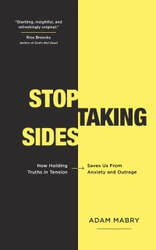
Adam Mabry talks about where our culture is on certain issues and the approaches we see around us. His cultural engagement is helpful, particularly in the chapter on ‘Politics and Kingdom’ where he helpfully shows us the dangers of putting our hope in politics:
If his party wins, he wins. If it loses, he not only loses but faces an existential crisis. It’s not just that he’s not ok; he cannot be ok. Why? Because he’s relocated his peace from the unchanging promises of God to the changing winds of politics. (132)
Mabry’s solution is that by ‘embracing the biblical tension between present politics and the future kingdom, we can develop the virtue of justice not only in ourselves but in our cultures’ (148) -Be Thinking
If his party wins, he wins. If it loses, he not only loses but faces an existential crisis. It’s not just that he’s not ok; he cannot be ok. Why? Because he’s relocated his peace from the unchanging promises of God to the changing winds of politics. (132)
Mabry’s solution is that by ‘embracing the biblical tension between present politics and the future kingdom, we can develop the virtue of justice not only in ourselves but in our cultures’ (148) -Be Thinking
"Why Government Can't Save You: An Alternative to Political Activism" by John MacArthur [c]2000 Word Publishing ISBN: 0849955556
MacArthur lays out a very convincing argument against having way too much faith in government.
MacArthur lays out a very convincing argument against having way too much faith in government.
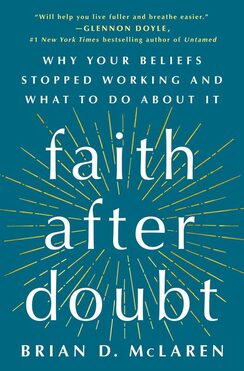
Jan 5, 2021: Religion News: Brian McLaren says there’s a good reason your beliefs stopped working
Beliefs are propositions, or statements that we say are true. That was the definition of faith I grew up with: it was the development and management of correct beliefs, and little more. What that means is that you can be orthodox and also a racist, or a tyrant over your family.
That makes no sense. Jesus did not say, “By your beliefs you will know them.”
I would rather define faith as the way we orient ourselves to meaning and mystery. When we expand faith, there’s still room for robust discussion of beliefs, but we’re able to see that beliefs in themselves are not the point. That brings us to Stage 4, Harmony, where we start to see that love is the point. I use Paul’s verse in Galatians—which we should all know by heart—where he says the only thing that matters is faith expressing itself in love.
Beliefs are propositions, or statements that we say are true. That was the definition of faith I grew up with: it was the development and management of correct beliefs, and little more. What that means is that you can be orthodox and also a racist, or a tyrant over your family.
That makes no sense. Jesus did not say, “By your beliefs you will know them.”
I would rather define faith as the way we orient ourselves to meaning and mystery. When we expand faith, there’s still room for robust discussion of beliefs, but we’re able to see that beliefs in themselves are not the point. That brings us to Stage 4, Harmony, where we start to see that love is the point. I use Paul’s verse in Galatians—which we should all know by heart—where he says the only thing that matters is faith expressing itself in love.
n
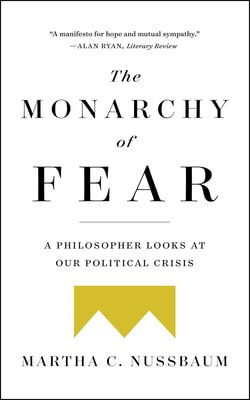
For decades Martha C. Nussbaum has been an acclaimed scholar and humanist, earning dozens of honors for her books and essays. In The Monarchy of Fear she turns her attention to the current political crisis that has polarized American since the 2016 election.
Although today’s atmosphere is marked by partisanship, divisive rhetoric, and the inability of two halves of the country to communicate with one another, Nussbaum focuses on what so many pollsters and pundits have overlooked. She sees a simple truth at the heart of the problem: the political is always emotional. Globalization has produced feelings of powerlessness in millions of people in the West. That sense of powerlessness bubbles into resentment and blame. Blame of immigrants. Blame of Muslims. Blame of other races. Blame of cultural elites. While this politics of blame is exemplified by the election of Donald Trump and the vote for Brexit, Nussbaum argues it can be found on all sides of the political spectrum, left or right. Drawing on a mix of historical and contemporary examples, from classical Athens to the musical Hamilton, The Monarchy of Fear untangles this web of feelings and provides a roadmap of where to go next.
Although today’s atmosphere is marked by partisanship, divisive rhetoric, and the inability of two halves of the country to communicate with one another, Nussbaum focuses on what so many pollsters and pundits have overlooked. She sees a simple truth at the heart of the problem: the political is always emotional. Globalization has produced feelings of powerlessness in millions of people in the West. That sense of powerlessness bubbles into resentment and blame. Blame of immigrants. Blame of Muslims. Blame of other races. Blame of cultural elites. While this politics of blame is exemplified by the election of Donald Trump and the vote for Brexit, Nussbaum argues it can be found on all sides of the political spectrum, left or right. Drawing on a mix of historical and contemporary examples, from classical Athens to the musical Hamilton, The Monarchy of Fear untangles this web of feelings and provides a roadmap of where to go next.
Martha C. Nussbaum is the Ernst Freund Distinguished Service Professor of Law and Ethics, appointed in the Philosophy Department and the Law School of the University of Chicago. She gave the 2016 Jefferson Lecture for the National Endowment for the Humanities and won the 2016 Kyoto Prize in Arts and Philosophy. The 2018 Berggruen Prize in Philosophy and Culture, and the 2020 Holberg Prize. These three prizes are regarded as the most prestigious awards available in fields not eligible for a Nobel. She has written more than twenty-two books, including Upheavals of Thought: The Intelligence of Emotions; Anger and Forgiveness: Resentment, Generosity, Justice; Not for Profit: Why Democracy Needs the Humanities; and The Monarchy of Fear.
p
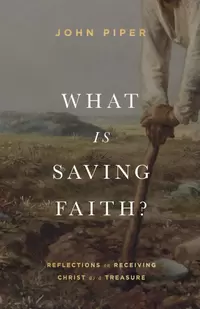
Nov 19, 2022: Denny Burk: What Happened at the Rocky Mountain ETS?
This was the only session that I planned to listen to from start to finish, and I did. There has been some controversy around John Piper’s recent book What Is Saving Faith? Reflections on Receiving Christ as a Treasure (Crossway, 2022). I won’t rehearse it all here, but some critics have charged Piper with adopting a view of faith that is more akin to Roman Catholicism than to Reformed Protestantism. Because Piper includes an affectional element in his definition of faith, he undermines sola fide. That’s the gist of the criticism anyway. I came with an open mind and heart wanting to hear from both sides to find out who could make the most persuasive case from Scripture. John Piper presented his case first, and then Guy Waters and J. V. Fesko responded with substantial critiques. Waters focused his critique on Piper’s reading of Scripture, and Fesko focused his on Piper’s use of historical sources. Joe Rigney moderated a spirited and respectful discussion after the three papers.
This was the only session that I planned to listen to from start to finish, and I did. There has been some controversy around John Piper’s recent book What Is Saving Faith? Reflections on Receiving Christ as a Treasure (Crossway, 2022). I won’t rehearse it all here, but some critics have charged Piper with adopting a view of faith that is more akin to Roman Catholicism than to Reformed Protestantism. Because Piper includes an affectional element in his definition of faith, he undermines sola fide. That’s the gist of the criticism anyway. I came with an open mind and heart wanting to hear from both sides to find out who could make the most persuasive case from Scripture. John Piper presented his case first, and then Guy Waters and J. V. Fesko responded with substantial critiques. Waters focused his critique on Piper’s reading of Scripture, and Fesko focused his on Piper’s use of historical sources. Joe Rigney moderated a spirited and respectful discussion after the three papers.
r
|
“In the common culture, inhabited by believers and unbelievers, there is common curse and a common blessing in every area of culture under the
terms of the Noahic Covenant. Media are no exception to this covenantal
principle of historical reality since the fall. Another way of putting
this is that when we fail to understand the limitations of media our
failure becomes part of the liabilities. Many of the extravagant claims
made for various new inventions are caused by failing to assess the
limits of that invention. For example, the computer is not going to
solve all of the world’s problems. Some educators imagine that the
incorporation of the computer into the classroom situation will
“revolutionize” education by making the students more “computer
literate,” or putting more information at their fingertips. As Postman
so tersely puts it: “any problems the schools cannot solve without
computers, they cannot solve with them.”
|
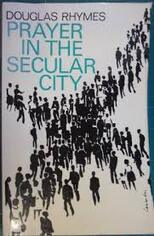
"Because inevitably our view of prayer is bound up with our view of God, and the problem of what we mean by God, and above all what we mean by calling God personal, will obviously affect not only our beliefs about prayer but also the way in which we pray. Prayer and faith are inseparable both in content and in method"
--Douglas Rhymes; Prayer in the Secular City; 1967
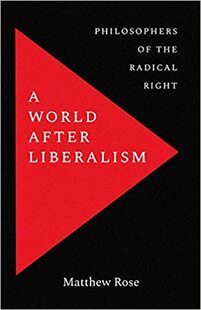
A World after Liberalism: Philosophers of the Radical Right by Matthew Rose
- Publisher : Yale University Press (August 3, 2021)
- Language : English
- Hardcover : 208 pages
- ISBN-10 : 0300243111
- ISBN-13 : 978-0300243116
- A bracing account of liberalism’s most radical critics introducing one of the most controversial movements of the twentieth century
-
“Powerful. . . . Bracing. . . . Part of the book’s eerie relevance comes from the role Russia plays throughout.”—Ezra Klein, New York Times
“One of the best books I’ve read this year. . . . Its importance at this critical moment in our history cannot be overstated.”—Rod Dreher, American Conservative
In this eye-opening book, Matthew Rose introduces us to one of the most controversial intellectual movements of the twentieth century, the “radical right,” and discusses its adherents’ different attempts to imagine political societies after the death or decline of liberalism. Rose shows how such thinkers are animated by religious aspirations and anxieties that are ultimately in tension with Christian teachings and the secular values those teachings birthed in modernity. - Editorial ReviewsReview“Powerful. . . . Bracing. . . . Part of the book’s eerie relevance comes from the role Russia plays throughout.”—Ezra Klein, New York Times
“Fascinating.”—G. John Ikenberry, Foreign Affairs
“Electric to read in this moment, and I strongly recommend.”—Ezra Klein, on Twitter
“One of the best books I’ve read this year. . . . Riveting. . . . Its importance at this critical moment in our history cannot be overstated.”—Rod Dreher, American Conservative
“The writing is fluid and compelling. The analysis is succinct and on point. . . . Rose helps readers understand the allure of alternative visions for the ordering of society and the goal of life.”—R. R. Reno, First Things
“As a Christian conservative, Rose has written his book as a warning against the temptation of Christian nationalism. It’s an exceptionally smart map of an important and understudied intellectual tradition. Crisply written and well researched, it is also fair.”—Jeet Heer, Commonweal
“Intelligent and serious.”—Scott McLemee, Inside Higher Education
“Richly researched and lucidly written.”—Henry George, Front Porch Republic
“‘I get bored by reading people who are allies,’ liberal Isaiah Berlin once remarked. ‘What is interesting is to read the enemy, because the enemy penetrates the defences.’ Even for those more suspicious than Matthew Rose of once peripheral twentieth-century sages of the far right, this book is useful reading, for transatlantic politics are leading more people to revive these idiosyncratic but interesting reactionaries. Rose draws his portraits well; more every day, his gallery is worth the visit.”—Samuel Moyn, Yale University
“This is one of the best discussions of the extreme right’s intellectual foundations that I have ever read. It provides a balanced, thoughtful approach to a movement that we must take very seriously.”—George Hawley, author of Making Sense of the Alt-Right
“This book changed the way I think about radical right wing politics in America and Europe. Matthew Rose’s subjects rarely appear in conventional histories of conservative thought, but his nuanced, humane analysis shows that anyone who wants to understand today’s alt-right and the populist backlash against liberalism needs to take them seriously.”—Molly Worthen, University of North Carolina at Chapel Hill
“The five thinkers surveyed in this even-tempered book lie far outside the orbit of conventional liberal thought. But no liberal, progressive or conservative, can afford to ignore the challenge they pose. Anyone who wants to understand the origin and appeal of the alt-right needs to start here.”—Anthony Kronman, author of The Assault on American Excellence
“A fascinating read. I could not put it down. Rose tells the story of a transnational radical right, which is far more intelligent and worldly than the liberal-left claims.”—Tamir Bar-on, Tecnológico de Monterrey, School of Social Sciences and Government
s
Feb 18, 2022: Alabama Baptist: Author shares personal battles overcoming anxiety, depression
Christian communicator and author Caris Snider is passionate about sharing the hope of God with those battling anxiety and depression because she’s been in their shoes.
In a recent TAB “Amplify” podcast, Snider spoke about her book, “Anxiety Elephants: A 31-Day Devotional to Help Stomp Out Your Anxiety,” and how her personal experiences with mental health issues inspired her to write about anxiety and depression.
Christian communicator and author Caris Snider is passionate about sharing the hope of God with those battling anxiety and depression because she’s been in their shoes.
In a recent TAB “Amplify” podcast, Snider spoke about her book, “Anxiety Elephants: A 31-Day Devotional to Help Stomp Out Your Anxiety,” and how her personal experiences with mental health issues inspired her to write about anxiety and depression.
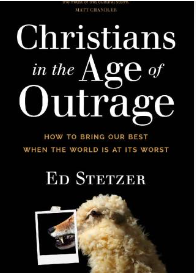
"Just because we can say something doesn’t mean we should. There are ways of confronting abuses of power, and I am certainly not condoning a mindless obedience. But Christians need to understand that the best place for difficult conversations is usually not online.”
"Outrage exhibits few if any of the short- or long-term characteristics Scripture associates with righteous anger. Righteous anger is aimed at the glory of God,, but outrage is an angry reaction to personal injury or insult. Where righteous anger is purposeful and designed to advance specific objectives and ends, outrage exhibits little critical thought as to its underlying focus, motivations, expressions, or ends.
"Outrage is motivated by a desire to punish or destroy rather than reconcile or refine. It is frequently accompanied by hubris and a confidence in its judgment, categorically rejecting any nuance. Outrage is fast and decisive rather than reflective, choosing to exhibit God’s retribution rather than reflect his persistent, steadfast love." -Ed Stetzer; Christians in the Age of Outrage
"Outrage exhibits few if any of the short- or long-term characteristics Scripture associates with righteous anger. Righteous anger is aimed at the glory of God,, but outrage is an angry reaction to personal injury or insult. Where righteous anger is purposeful and designed to advance specific objectives and ends, outrage exhibits little critical thought as to its underlying focus, motivations, expressions, or ends.
"Outrage is motivated by a desire to punish or destroy rather than reconcile or refine. It is frequently accompanied by hubris and a confidence in its judgment, categorically rejecting any nuance. Outrage is fast and decisive rather than reflective, choosing to exhibit God’s retribution rather than reflect his persistent, steadfast love." -Ed Stetzer; Christians in the Age of Outrage
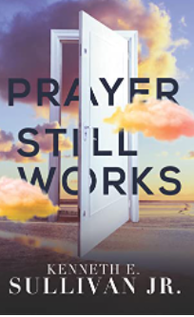
Prayer Still Works by Kenneth Sullivan Jr is designed to examine the power of prayer through a number of powerful biblical examples alongside illustrations from our age. While reading this book you will gain insight on how to tap into the power of prayer and to fully realize how God's spiritual authority directly flows into your life. Prayer Still works today!
Prayer can be used to address every single human issue on earth. Through prayer, we are not only able to commune with God, but we invite God into our lives and affairs. Prayer is not some outdated and antiquated approach to life matters whose effectiveness has expired; but it is, in fact, still potent and powerful to heal, to change circumstances, and to address whatever we may be facing, right now. Readers will be encouraged by several examples of prayer, and they will be equipped with a guide to help them build a stronger, richer, more effective prayer life. Experience the power of prayer being activated in your life like never before!
Prayer can be used to address every single human issue on earth. Through prayer, we are not only able to commune with God, but we invite God into our lives and affairs. Prayer is not some outdated and antiquated approach to life matters whose effectiveness has expired; but it is, in fact, still potent and powerful to heal, to change circumstances, and to address whatever we may be facing, right now. Readers will be encouraged by several examples of prayer, and they will be equipped with a guide to help them build a stronger, richer, more effective prayer life. Experience the power of prayer being activated in your life like never before!
t
"Why Revival Still Tarries" by Chad Taylor [c]2005 Destiny Image Publishers ISBN: 0768422752
A great message for a complacent church in the 21st Century..particularly here in America where "having it all" is confused with "being blessed."
A great message for a complacent church in the 21st Century..particularly here in America where "having it all" is confused with "being blessed."
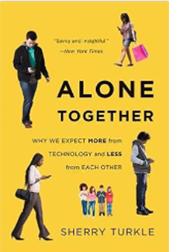
Alone Together: Why We Expect More from Technology and Less from Each Other by Sherry Turkle [2012]
A groundbreaking book by one of the most important thinkers of our time shows how technology is warping our social lives and our inner ones
Technology has become the architect of our intimacies. Online, we fall prey to the illusion of companionship, gathering thousands of Twitter and Facebook friends, and confusing tweets and wall posts with authentic communication. But this relentless connection leads to a deep solitude. MIT professor Sherry Turkle argues that as technology ramps up, our emotional lives ramp down. Based on hundreds of interviews and with a new introduction taking us to the present day, Alone Together describes changing, unsettling relationships between friends, lovers, and families.
A groundbreaking book by one of the most important thinkers of our time shows how technology is warping our social lives and our inner ones
Technology has become the architect of our intimacies. Online, we fall prey to the illusion of companionship, gathering thousands of Twitter and Facebook friends, and confusing tweets and wall posts with authentic communication. But this relentless connection leads to a deep solitude. MIT professor Sherry Turkle argues that as technology ramps up, our emotional lives ramp down. Based on hundreds of interviews and with a new introduction taking us to the present day, Alone Together describes changing, unsettling relationships between friends, lovers, and families.
w
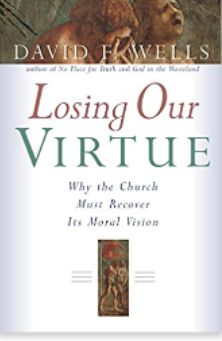
In Losing Our Virtue: Why the Church Must Recover Its Moral Vision, theologian David Wells argues that the Church is in danger of losing its moral authority to speak to a culture whose moral fabric is torn. Although much of the Church has enjoyed success and growth over the past years, Wells laments a "hollowing out of evangelical conviction, a loss of the biblical word in its authoritative function, and an erosion of character to the point that today, no discernible ethical differences are evident in behavior when those claiming to have been reborn and secularists are compared." The assurance of the Good News of the gospel has been traded for mere good feelings, truth has given way to perception, and morality has slid into personal preference. Losing Our Virtue is about the disintegrating moral culture that is contemporary society and what this disturbing loss means for the church. Wells covers the following in this bold critique: how the theologically emptied spirituality of the church is causing it to lose its moral bearings an exploration of the wider dynamic at work in contemporary society between license and law an exposition of the secular notion of salvation as heralded by our most trusted gurus--advertisers and psychotherapists a discussion of the contemporary view of the self how guilt and sin have been replaced by empty psychological shame an examination of the contradiction between the way we view ourselves in the midst of our own culture and the biblical view of persons as created, moral beings Can the church still speak effectively to a culture that has become morally unraveled? Wells believes it can. In fact, says Wells, no time in this century has been more opportune for the Christian faith--if the church can muster the courage to regain its moral weight and become a missionary of truth once more to a foundering world.

The Case for Christian Nationalism by Stephen Wolfe
Publisher : Canon Press (November 1, 2022)
Language : English
Paperback : 488 pages....
There are major problems with The Case for Christian Nationalism. First, regarding style, Wolfe is far from accessible. This book is slow going. Wolfe claims to “resurrect” the style of the Magisterial Reformers and to counteract tweetable sound bites with “the force of logic.” At times, though, it seems as if Wolfe’s strategy is to employ a verbal barrage as a tidal wave to obscure just how debatable some of his contentions are, whether condoning Christian violent revolution or warning against the perils of seed oil. Second, Wolfe is hardly charitable to any challenge or disagreement. Wolfe dismisses any criticism of Christian nationalism as lacking logical coherence, being critically beholden to leftist sociology, or just not in his domain (like theology.) He simply cannot entertain a world where he might be wrong.
For more substantial political, historical, and philosophical criticism, others have written long critiques, most notably Kevin DeYoung, Neil Shenvi, Brian Mattson, and Susannah Black Roberts. I, however, wish to address several ways that Wolfe betrays his own tradition—a betrayal that ought to make us wary of his approach to scholarship in general.
Wolfe writes explicitly as a Presbyterian and endorses a Presbyterian Christian nationalism. Reformed Presbyterians are compelled by conscience, tradition, and confession to found any theological and theological-political program upon scripture first. Yet Wolfe does not even make a passing effort to consult scripture to bolster his arguments; instead, he says, “I make little effort to exegete biblical text.” He attempts instead to validate his arguments by appealing to the Magisterial Reformers (including John Calvin), Puritans, and others. Throughout his argument, scripture is decorative, not foundational. In the most theological chapters, the first and second, Wolfe writes dozens of pages with hardly one proof text, let alone serious explication or exegesis. Within the tradition Wolfe claims as his own, this move is inexcusable. Any reader of the Westminster Divines, Calvin, and the Puritans knows this: do not start an argument by saying “I will ignore scripture.” The Reformed tradition long admits that it stands or falls on privileging scripture when interpreting human experience and obligations, and that more systematically than any other Christian tradition. In dismissing scripture, Wolfe betrays his confession and the theological giants whose shoulders he claims to stand upon. With that betrayal, he casts a shadow on all his many invocations of past thinkers, for he makes little effort to understand these theological traditions, which themselves are rooted in biblical reflection. Instead, he merely exploits them.
Second, Wolfe minimizes the effect of sin on human society and civil life. For Wolfe, the Fall’s main effect was spiritual: it compromised man’s relationship with God and merited divine wrath but did not substantially damage man’s natural, earthly (civil) relationships. Thus, humans may consult their natural gifts or instincts for guidance in civil order. Again, Wolfe claims that grace does not abrogate nature but perfects it. This theology of sin is nowhere close to the Augustinian, Protestant, Presbyterian traditions. As Wolfe downplays human sin and overemphasizes natural human instincts and impulses, he ironically arrives in the same philosophical zip code as a Rousseau or a Schleiermacher—hardly champions of traditional Christian thought. --Acton Institute
Publisher : Canon Press (November 1, 2022)
Language : English
Paperback : 488 pages....
There are major problems with The Case for Christian Nationalism. First, regarding style, Wolfe is far from accessible. This book is slow going. Wolfe claims to “resurrect” the style of the Magisterial Reformers and to counteract tweetable sound bites with “the force of logic.” At times, though, it seems as if Wolfe’s strategy is to employ a verbal barrage as a tidal wave to obscure just how debatable some of his contentions are, whether condoning Christian violent revolution or warning against the perils of seed oil. Second, Wolfe is hardly charitable to any challenge or disagreement. Wolfe dismisses any criticism of Christian nationalism as lacking logical coherence, being critically beholden to leftist sociology, or just not in his domain (like theology.) He simply cannot entertain a world where he might be wrong.
For more substantial political, historical, and philosophical criticism, others have written long critiques, most notably Kevin DeYoung, Neil Shenvi, Brian Mattson, and Susannah Black Roberts. I, however, wish to address several ways that Wolfe betrays his own tradition—a betrayal that ought to make us wary of his approach to scholarship in general.
Wolfe writes explicitly as a Presbyterian and endorses a Presbyterian Christian nationalism. Reformed Presbyterians are compelled by conscience, tradition, and confession to found any theological and theological-political program upon scripture first. Yet Wolfe does not even make a passing effort to consult scripture to bolster his arguments; instead, he says, “I make little effort to exegete biblical text.” He attempts instead to validate his arguments by appealing to the Magisterial Reformers (including John Calvin), Puritans, and others. Throughout his argument, scripture is decorative, not foundational. In the most theological chapters, the first and second, Wolfe writes dozens of pages with hardly one proof text, let alone serious explication or exegesis. Within the tradition Wolfe claims as his own, this move is inexcusable. Any reader of the Westminster Divines, Calvin, and the Puritans knows this: do not start an argument by saying “I will ignore scripture.” The Reformed tradition long admits that it stands or falls on privileging scripture when interpreting human experience and obligations, and that more systematically than any other Christian tradition. In dismissing scripture, Wolfe betrays his confession and the theological giants whose shoulders he claims to stand upon. With that betrayal, he casts a shadow on all his many invocations of past thinkers, for he makes little effort to understand these theological traditions, which themselves are rooted in biblical reflection. Instead, he merely exploits them.
Second, Wolfe minimizes the effect of sin on human society and civil life. For Wolfe, the Fall’s main effect was spiritual: it compromised man’s relationship with God and merited divine wrath but did not substantially damage man’s natural, earthly (civil) relationships. Thus, humans may consult their natural gifts or instincts for guidance in civil order. Again, Wolfe claims that grace does not abrogate nature but perfects it. This theology of sin is nowhere close to the Augustinian, Protestant, Presbyterian traditions. As Wolfe downplays human sin and overemphasizes natural human instincts and impulses, he ironically arrives in the same philosophical zip code as a Rousseau or a Schleiermacher—hardly champions of traditional Christian thought. --Acton Institute

"You've Already Got It: So Quit Trying to Get It" by Andrew Wommack [c]2006
One of the most used...yet overlooked and misunderstood scripture in the Bible is the one where Jesus, just before He died on the cross, said "It is finished!". Even still, it has not stopped many a Christian from trying to finish what Jesus already did. Wommack addresses that and other issues where much of our struggle is in trying to do stuff Jesus already did. He utiilizes a lot of the book of Ephesians.
One of the most used...yet overlooked and misunderstood scripture in the Bible is the one where Jesus, just before He died on the cross, said "It is finished!". Even still, it has not stopped many a Christian from trying to finish what Jesus already did. Wommack addresses that and other issues where much of our struggle is in trying to do stuff Jesus already did. He utiilizes a lot of the book of Ephesians.
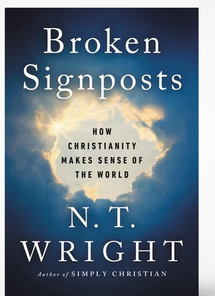
In 2005, renowned biblical scholar N. T. Wright’s book, Simply Christian, offered readers an introduction to the Christian faith in which Wright examined four themes—justice, spirituality, relationships, and beauty. He described them as “‘echoes of a voice’: when we ponder them, it’s as though we are hearing someone calling from just around the corner, out of sight.” Since then, Wright says, his thinking has developed and he has added three more areas that people also experience as “echoes of this voice—freedom, truth, and power.”
Wright once considered these seven areas as universal themes, but he has come to see them as signposts: “Signposts name a reality and point us in a direction. Likewise, these seven signposts name realities that all human cultures value as well as pointing beyond themselves to the meaning of life, to the meaning of the world. They indicate, in fact, how we ought to ‘make sense’ of the world—how we ought to understand the way the world is and the challenge of being human within it.” However, Wright points out, because of the fallenness of humanity, these signposts always fail to deliver on what they promise. So, he says, they should be more accurately named broken signposts.
Wright frames up his exploration of the broken signposts through the lens of the Gospel of John. Clearly and simply written—this isn’t an academic tome; it’s accessible to lay people--Broken Signposts does more than help readers make sense of the world. It also explores ways in which they can “contribute fresh ‘sense’” through how they live their lives and interact with others in their communities. Recommended as an excellent resource for anyone desiring to more fully understand the Christian faith and longing to live more faithfully into the biblical promise of a new creation, initiated through the life, death, and resurrection of Jesus Christ. (HarperOne)
Wright once considered these seven areas as universal themes, but he has come to see them as signposts: “Signposts name a reality and point us in a direction. Likewise, these seven signposts name realities that all human cultures value as well as pointing beyond themselves to the meaning of life, to the meaning of the world. They indicate, in fact, how we ought to ‘make sense’ of the world—how we ought to understand the way the world is and the challenge of being human within it.” However, Wright points out, because of the fallenness of humanity, these signposts always fail to deliver on what they promise. So, he says, they should be more accurately named broken signposts.
Wright frames up his exploration of the broken signposts through the lens of the Gospel of John. Clearly and simply written—this isn’t an academic tome; it’s accessible to lay people--Broken Signposts does more than help readers make sense of the world. It also explores ways in which they can “contribute fresh ‘sense’” through how they live their lives and interact with others in their communities. Recommended as an excellent resource for anyone desiring to more fully understand the Christian faith and longing to live more faithfully into the biblical promise of a new creation, initiated through the life, death, and resurrection of Jesus Christ. (HarperOne)
























